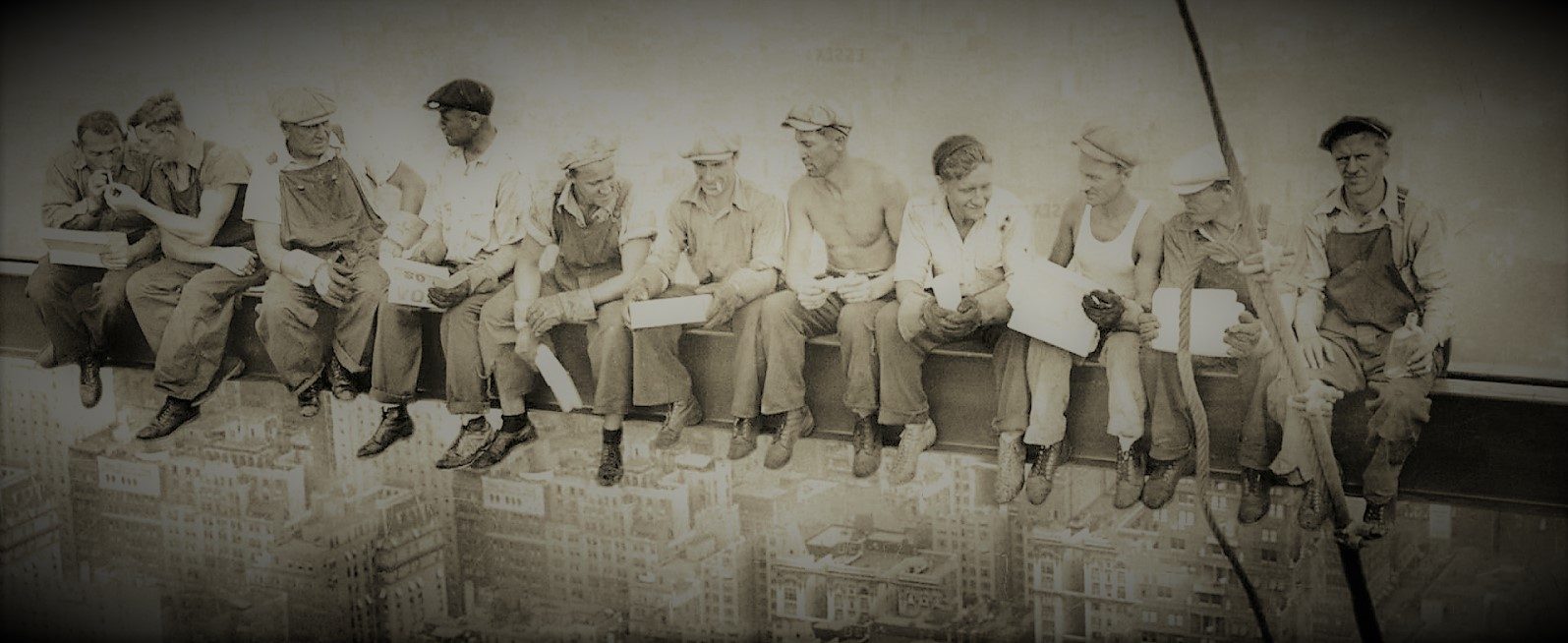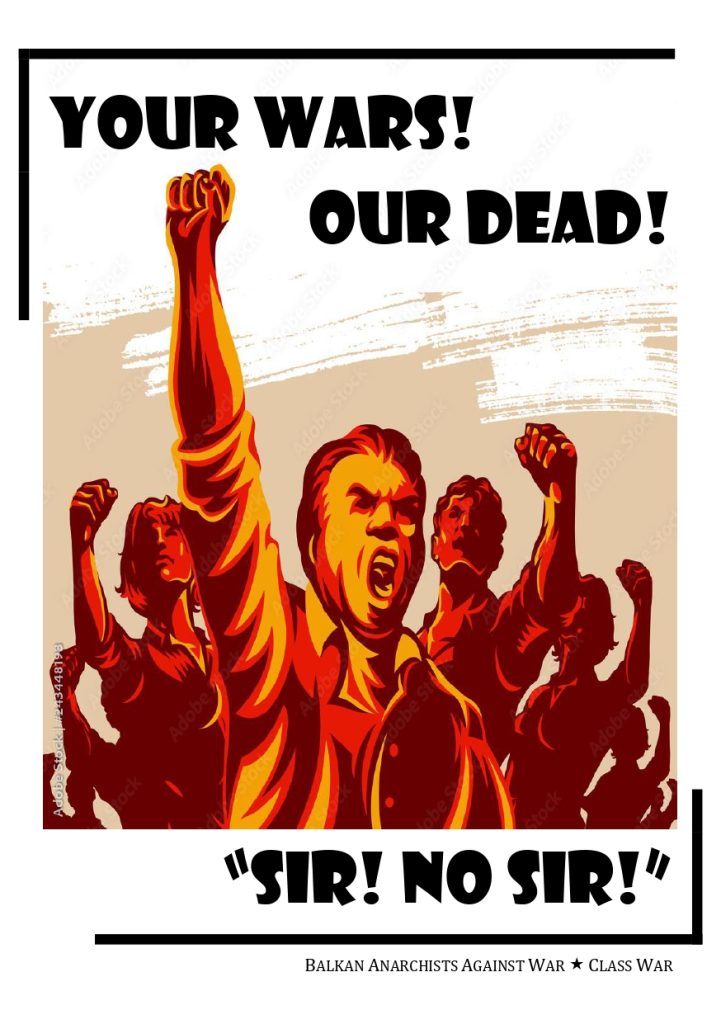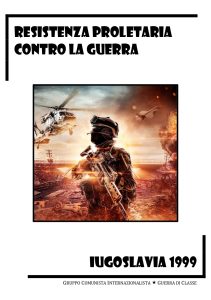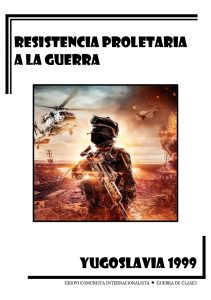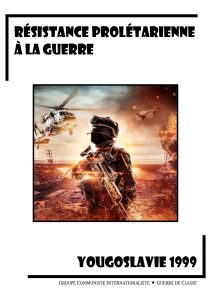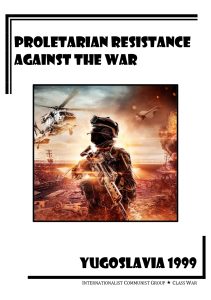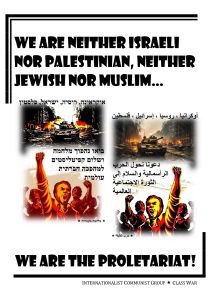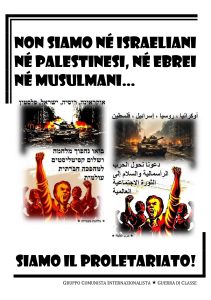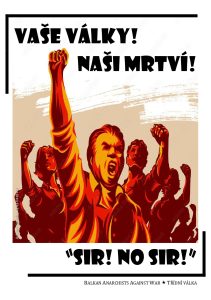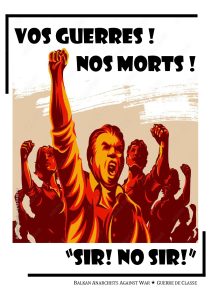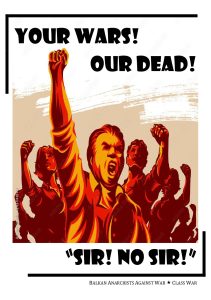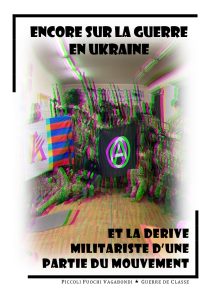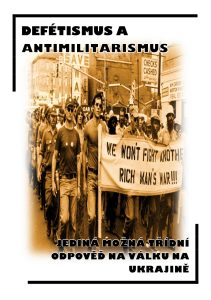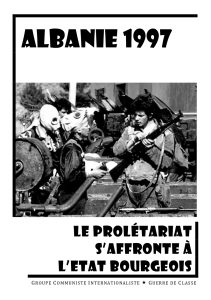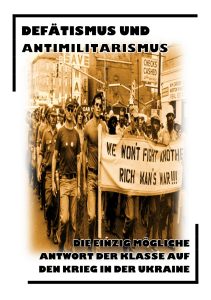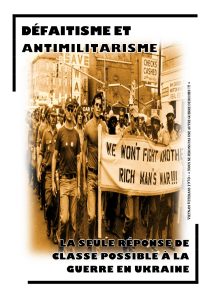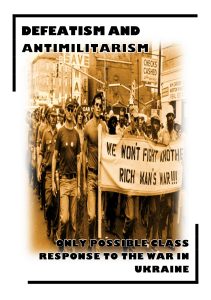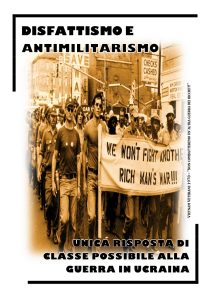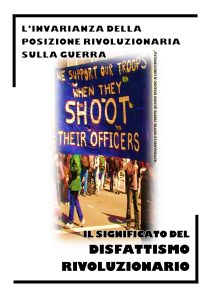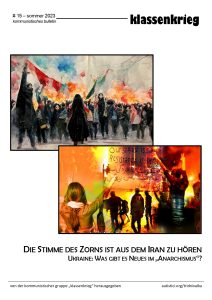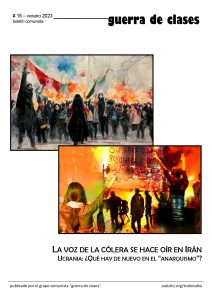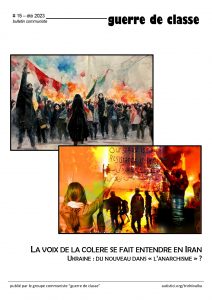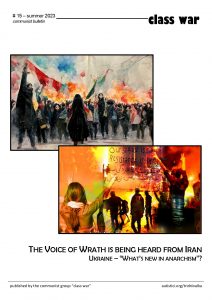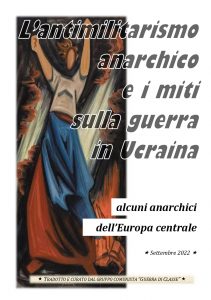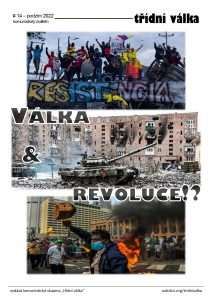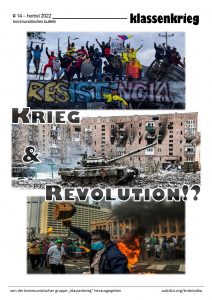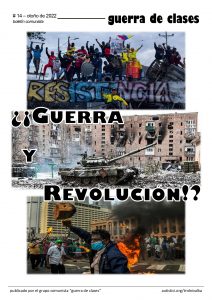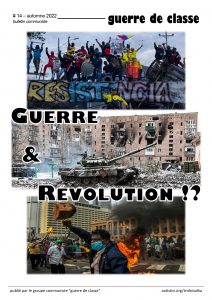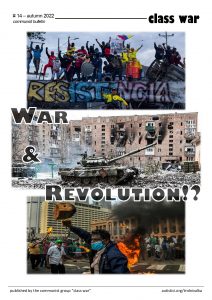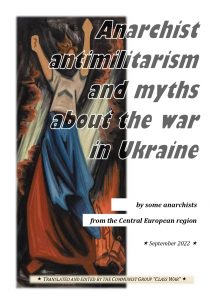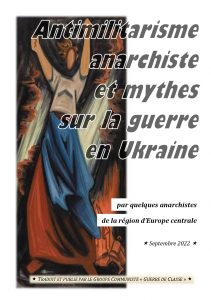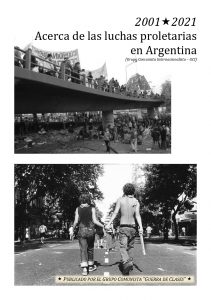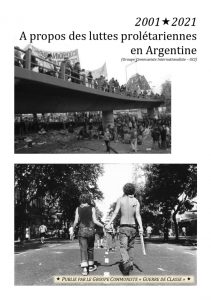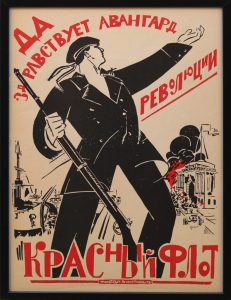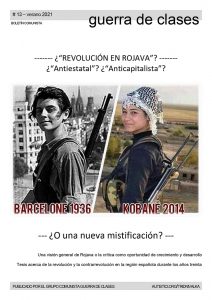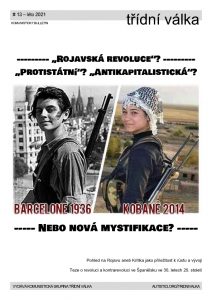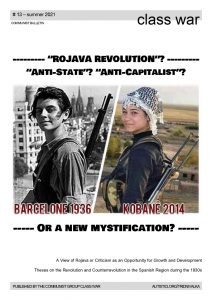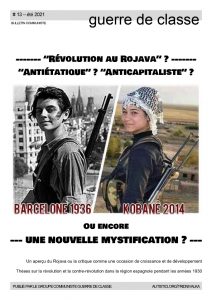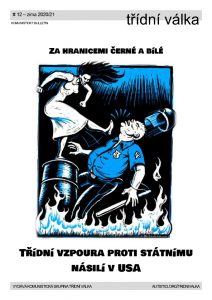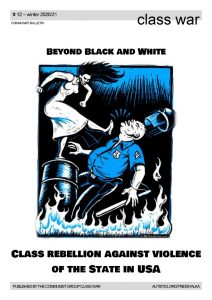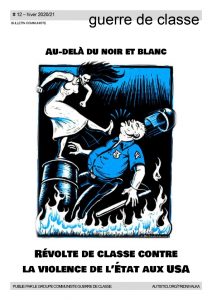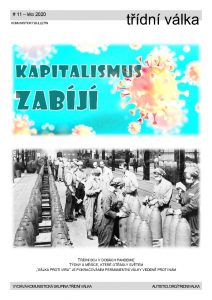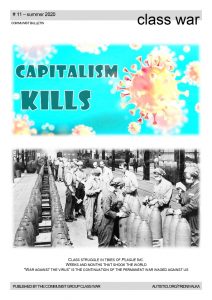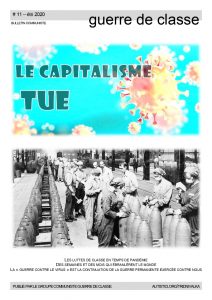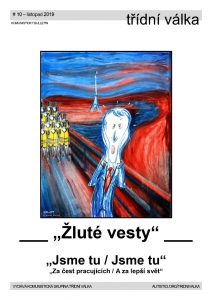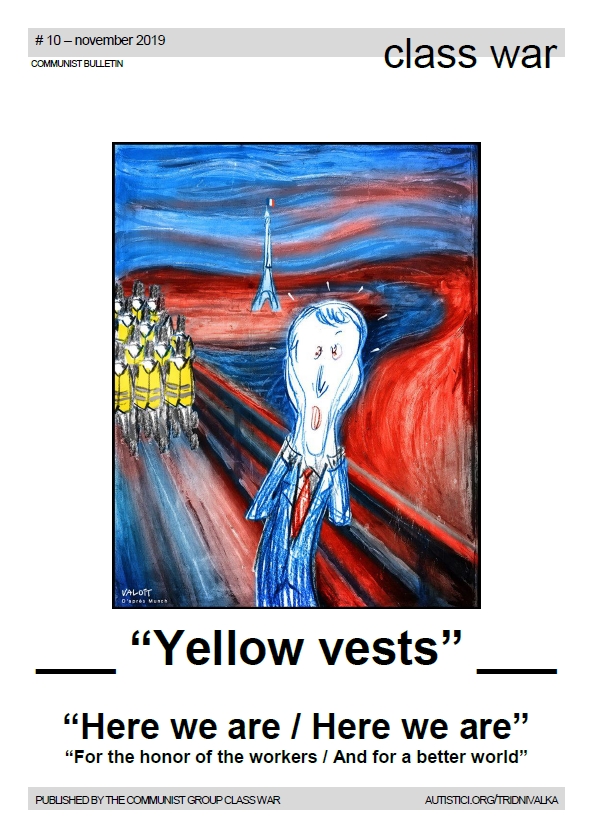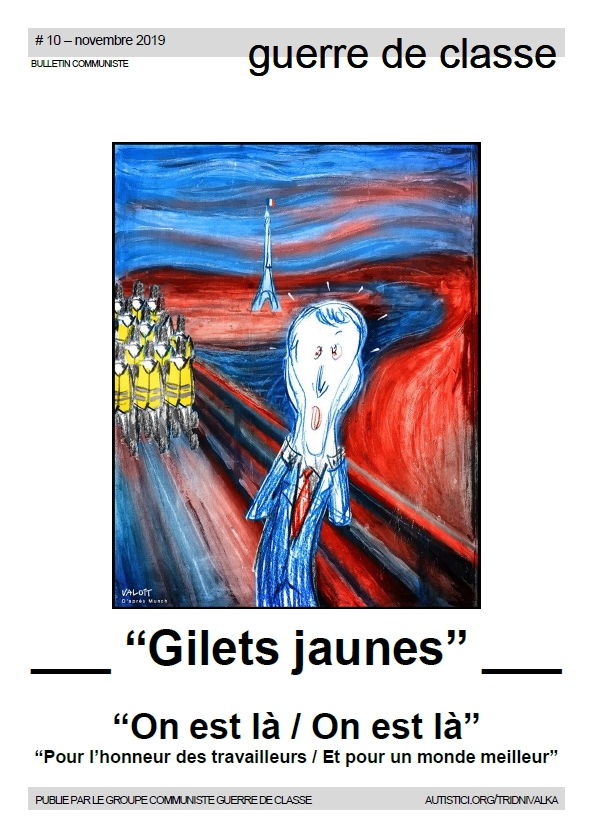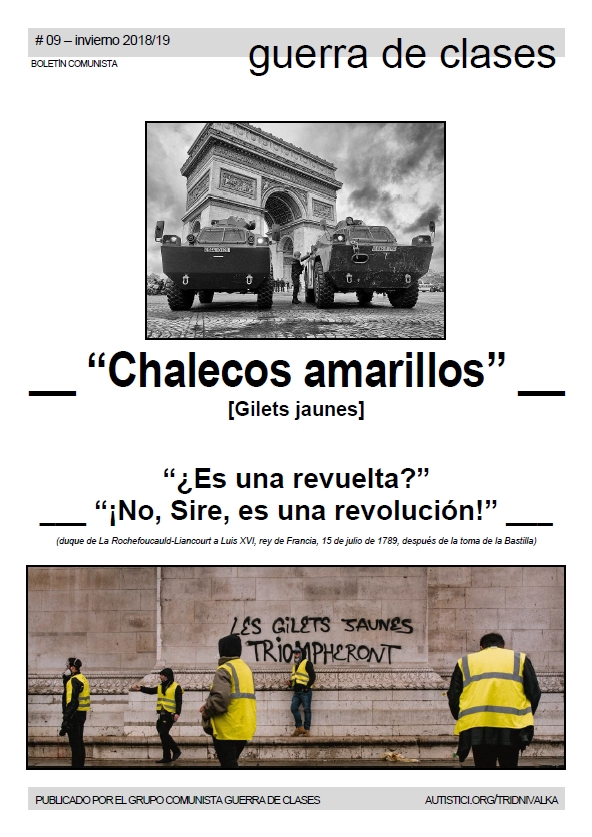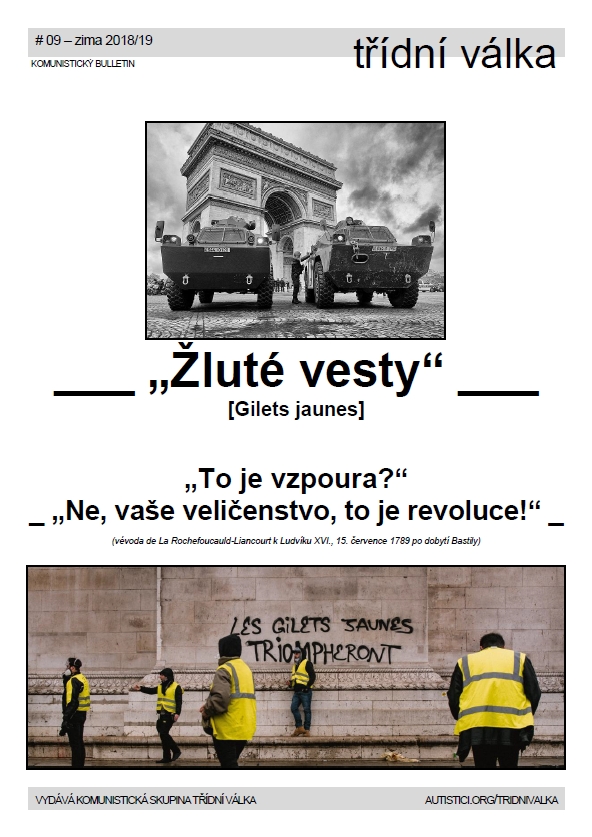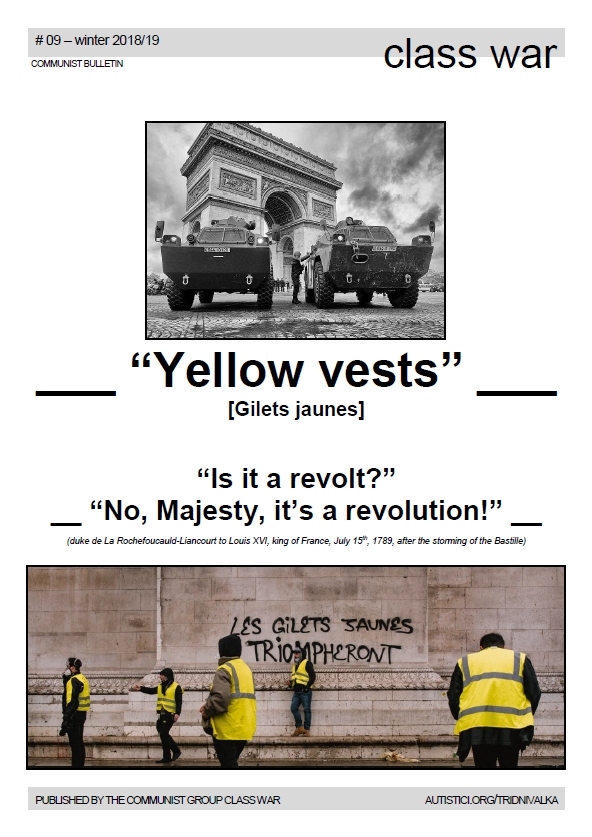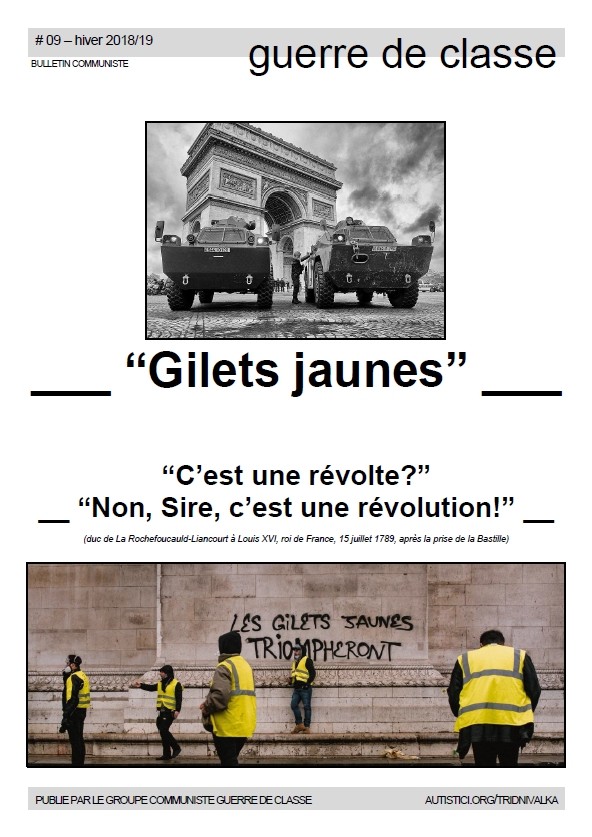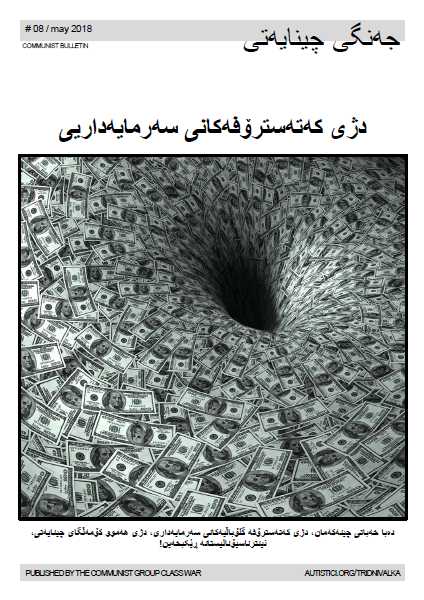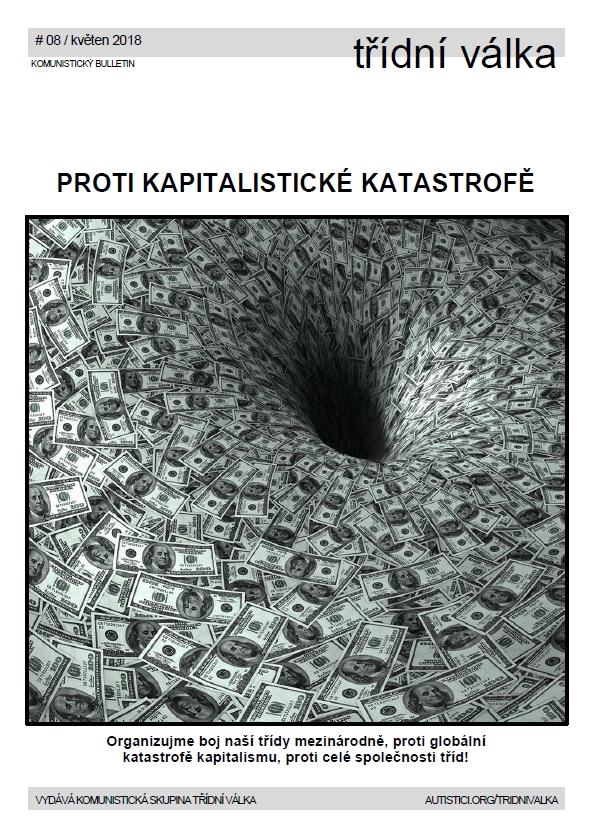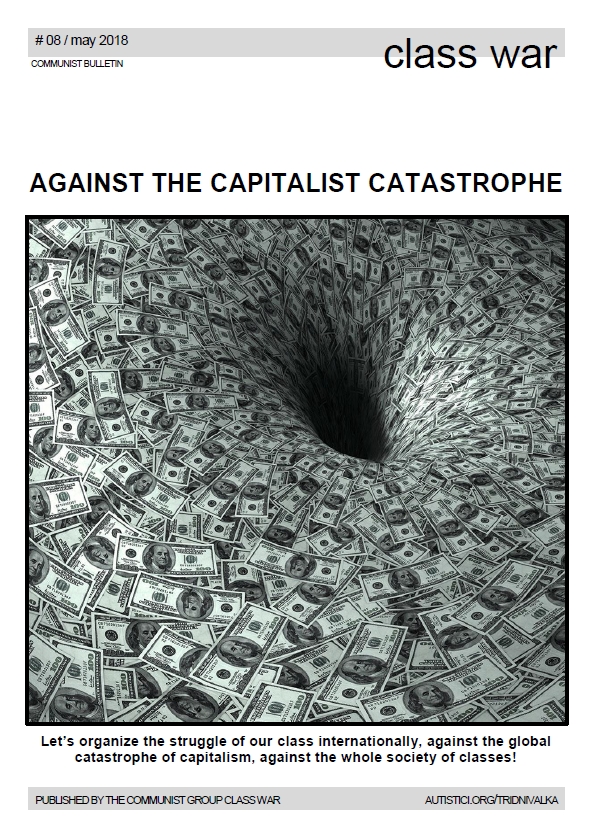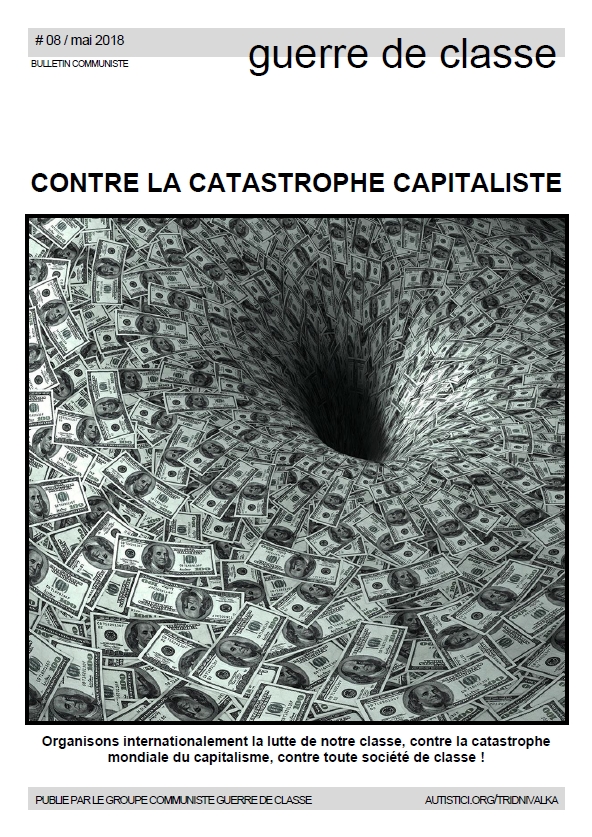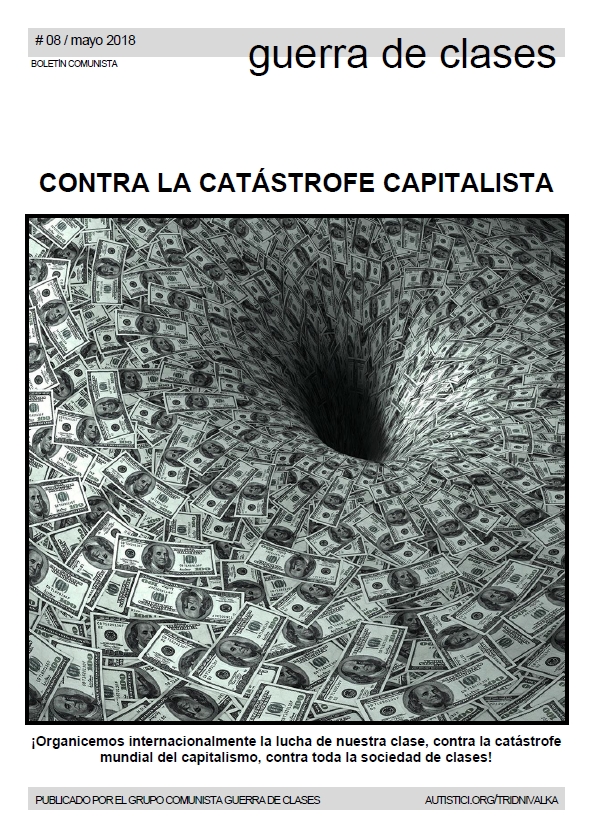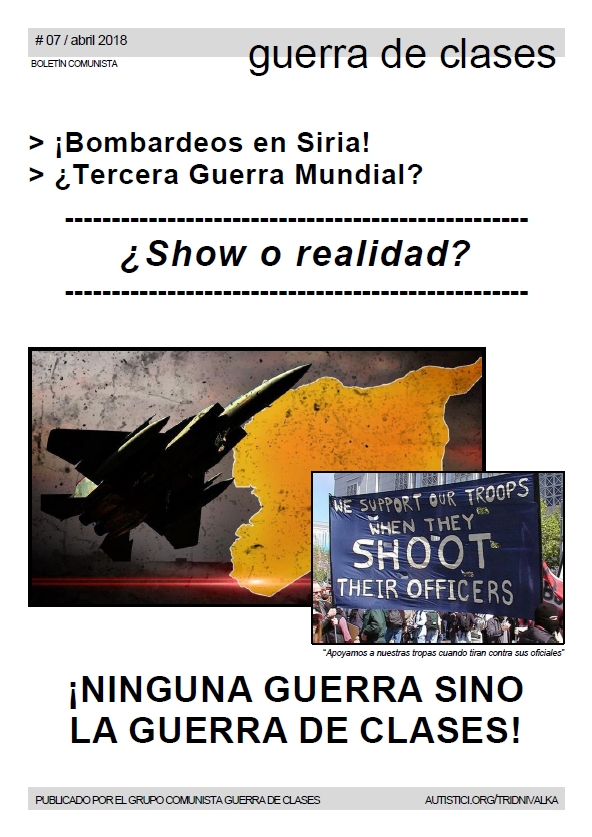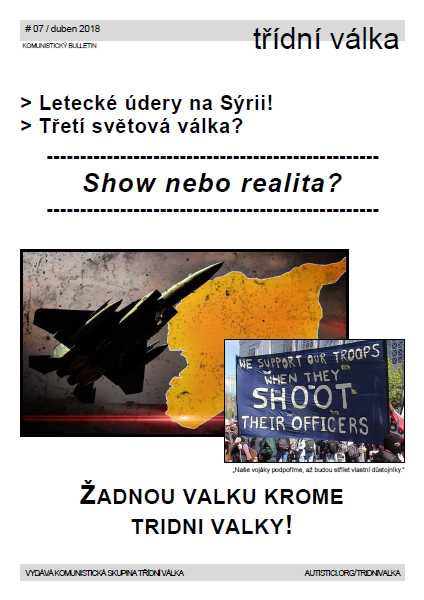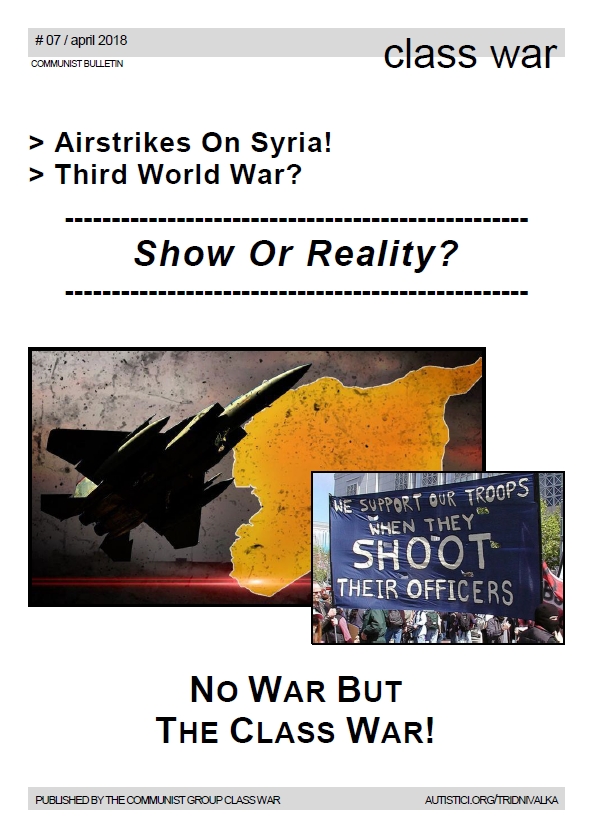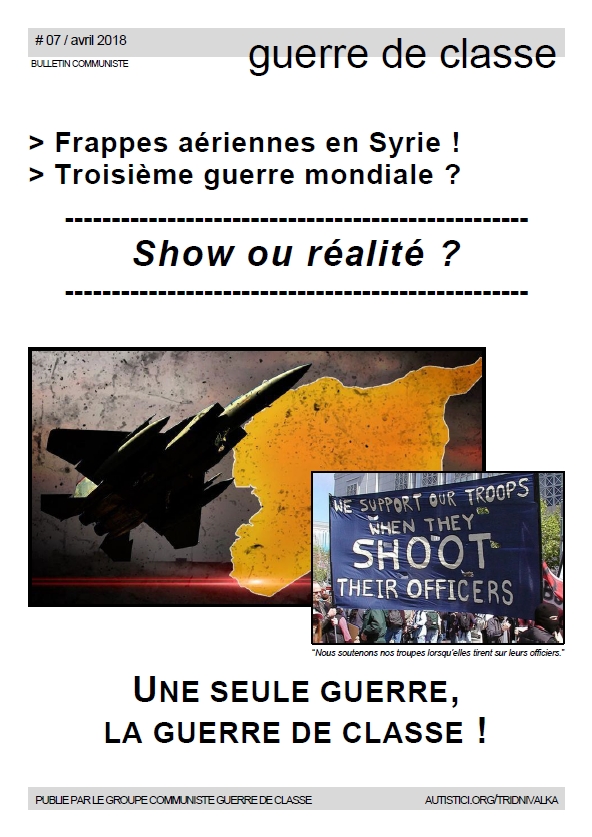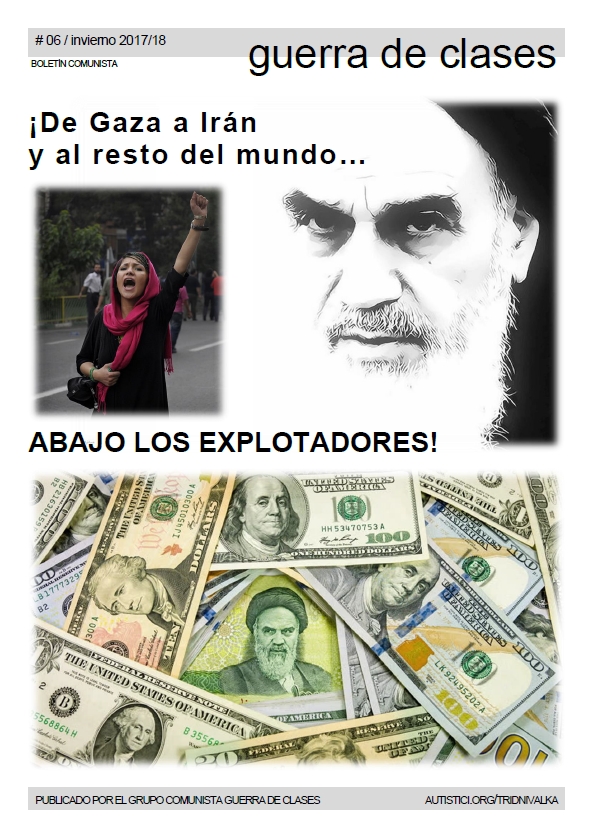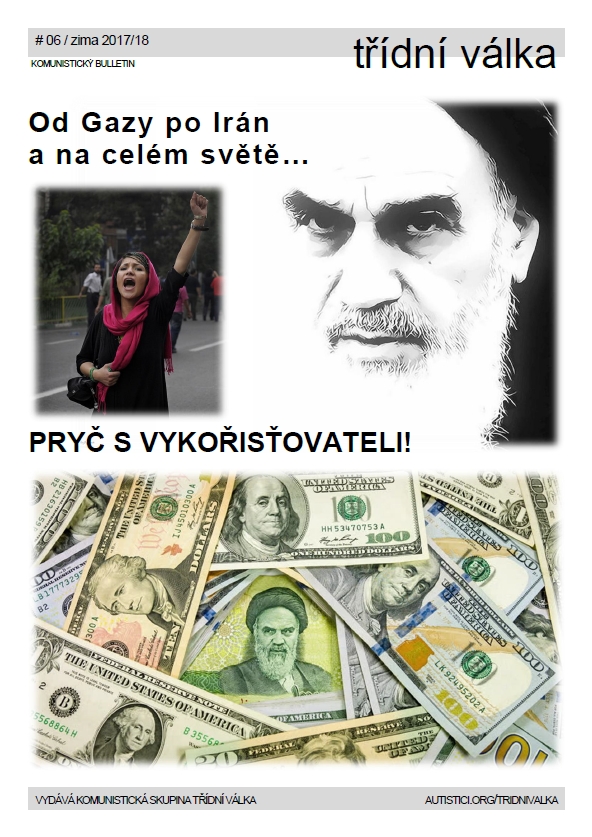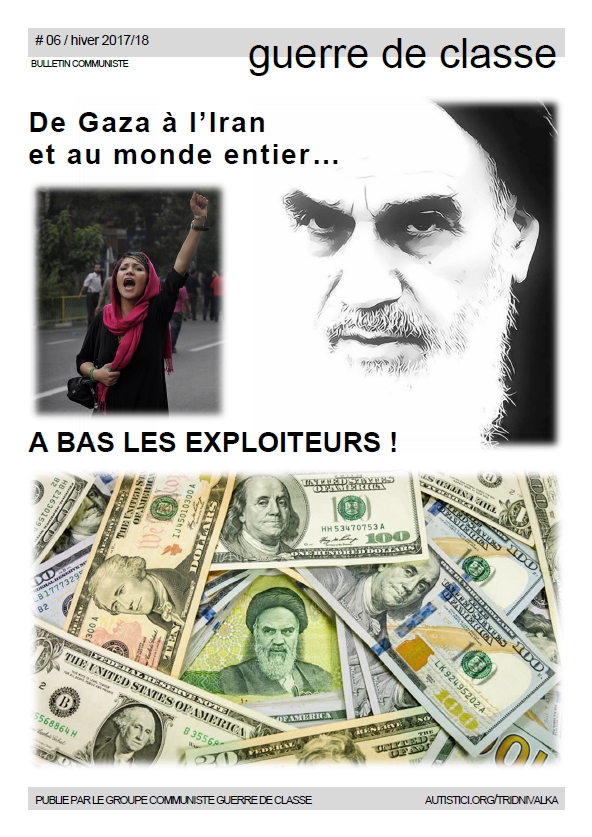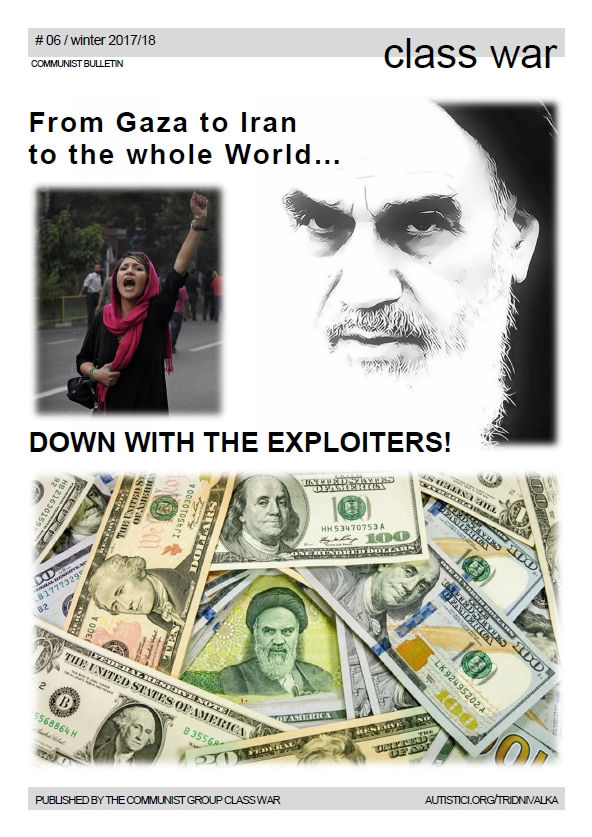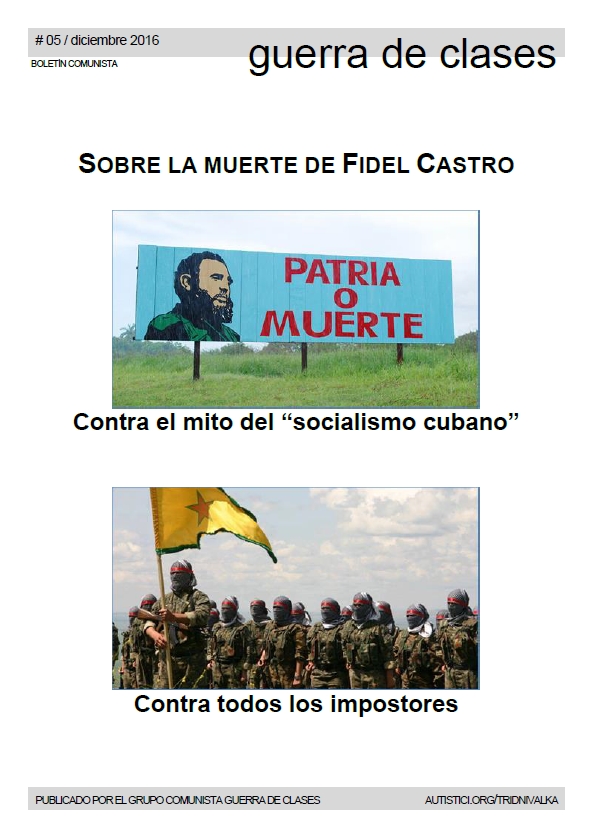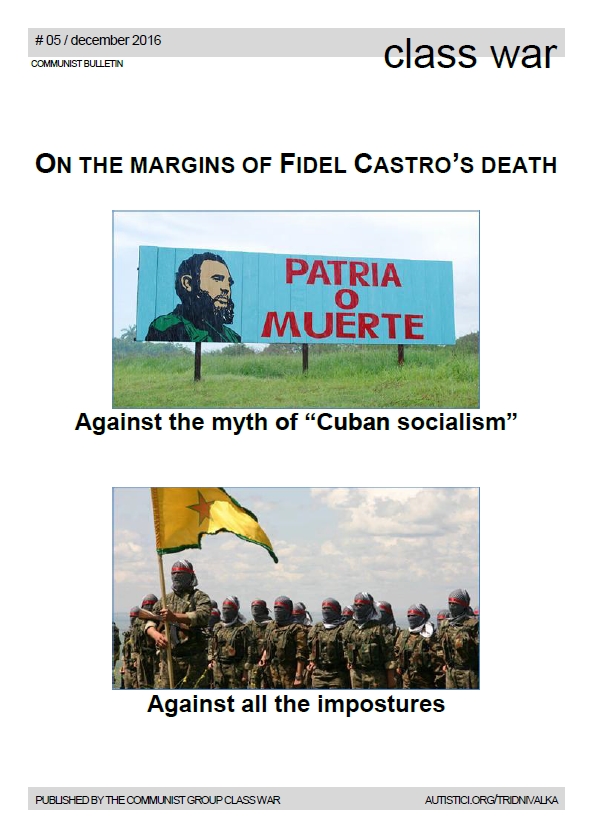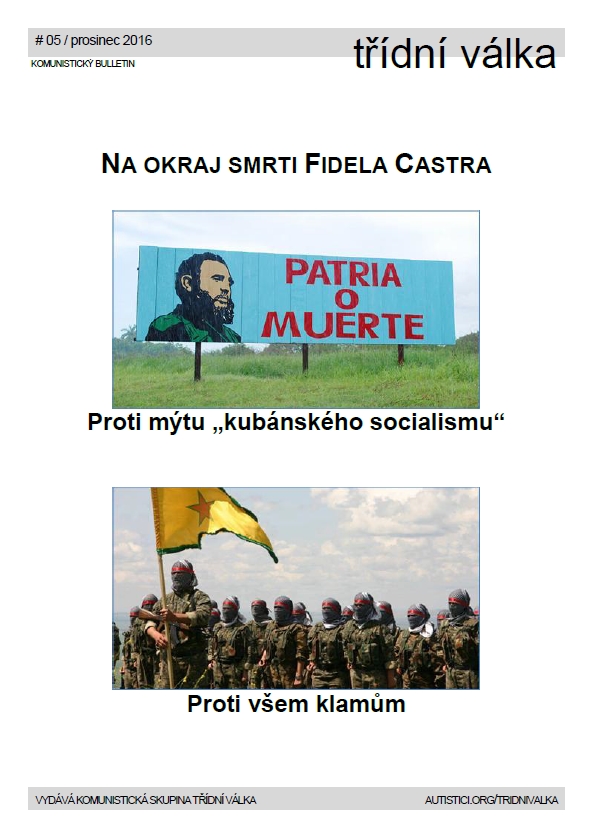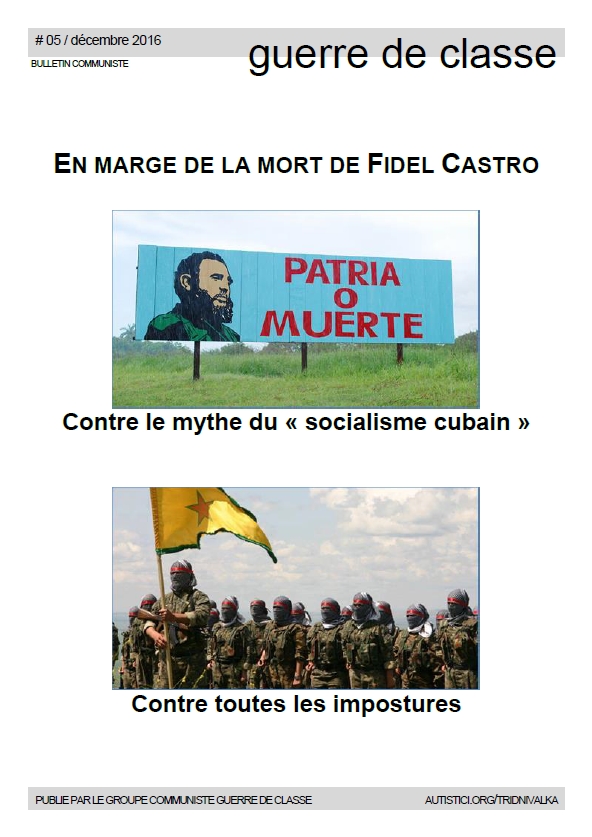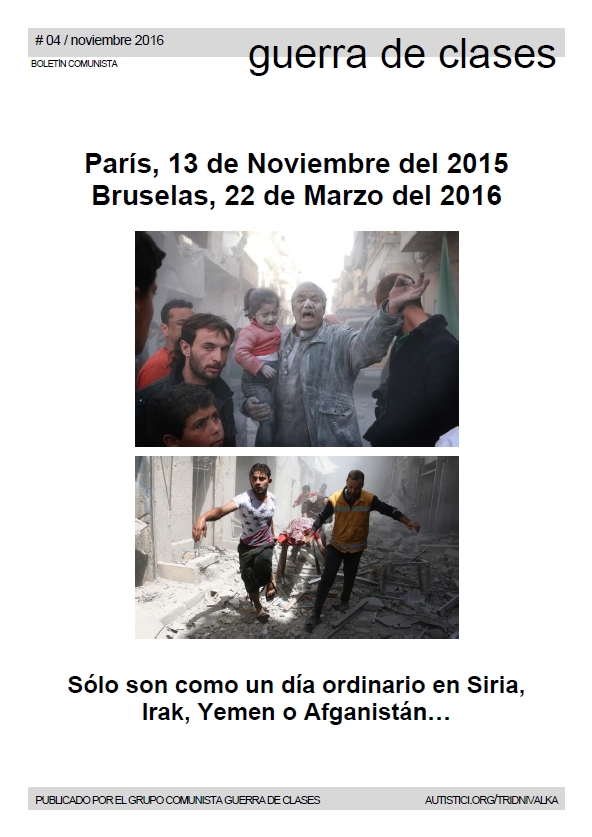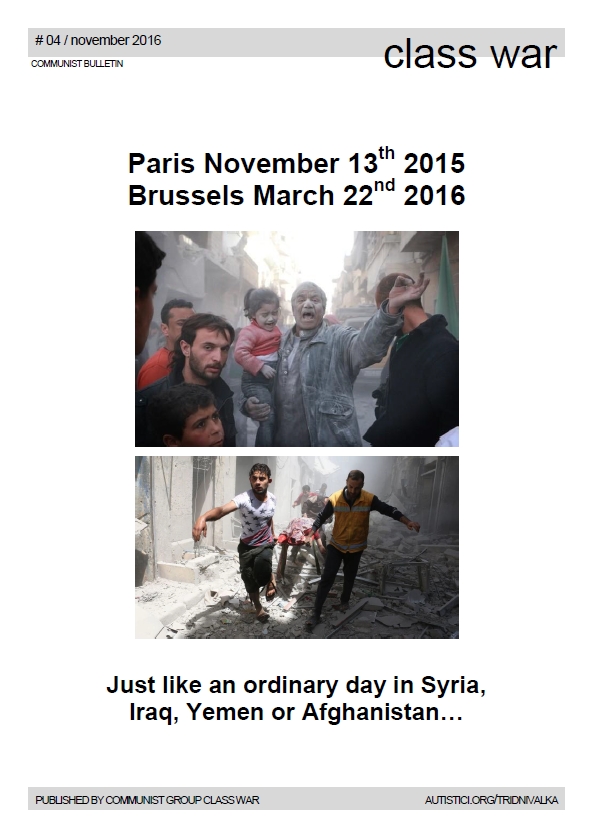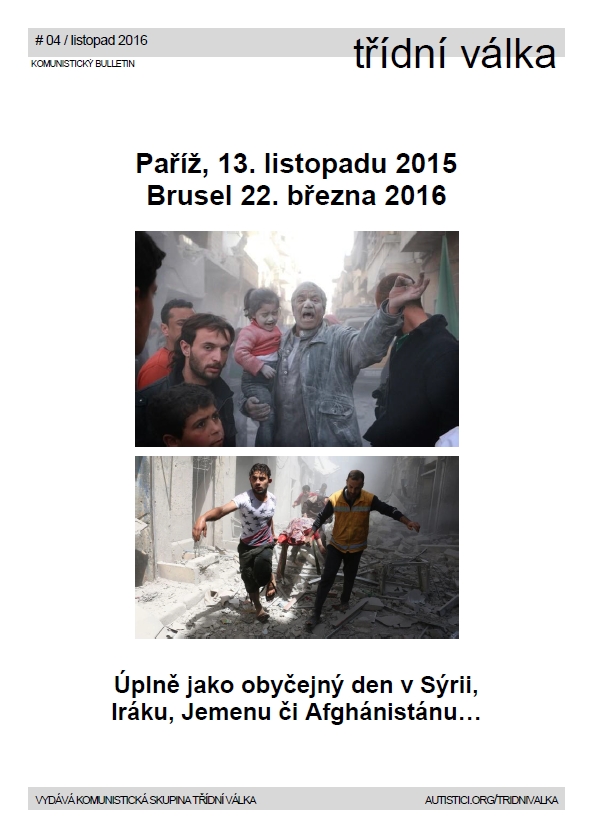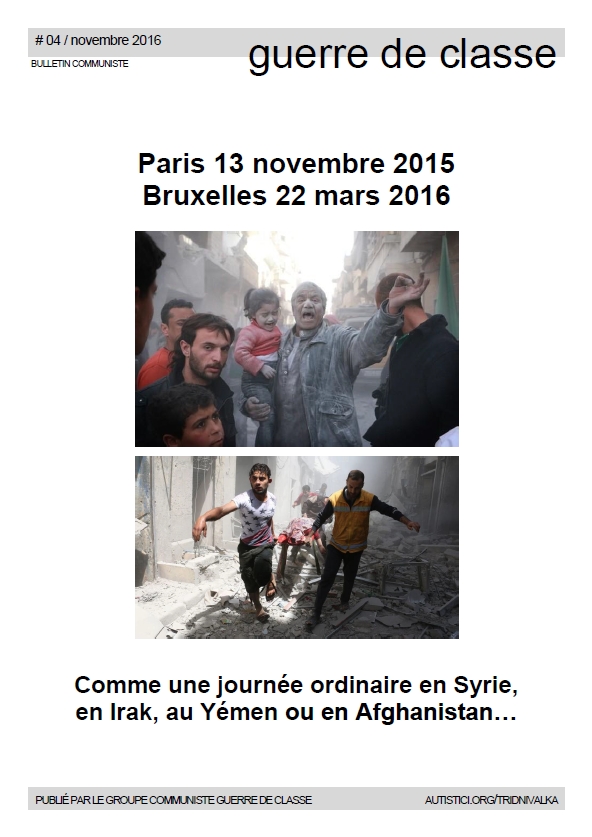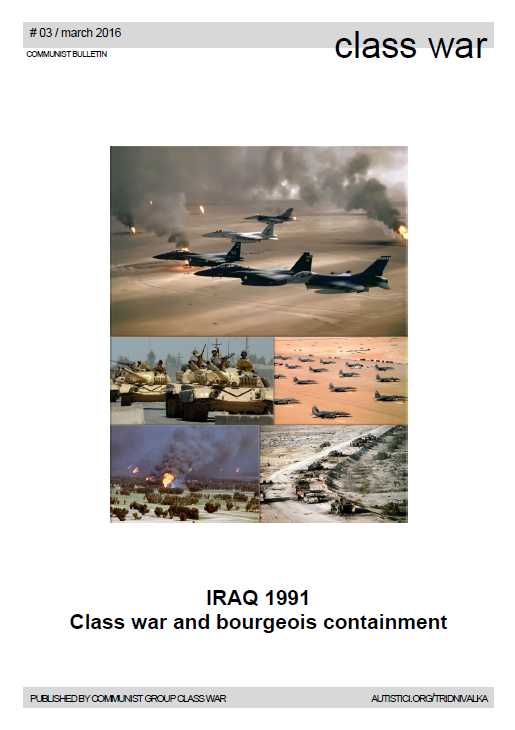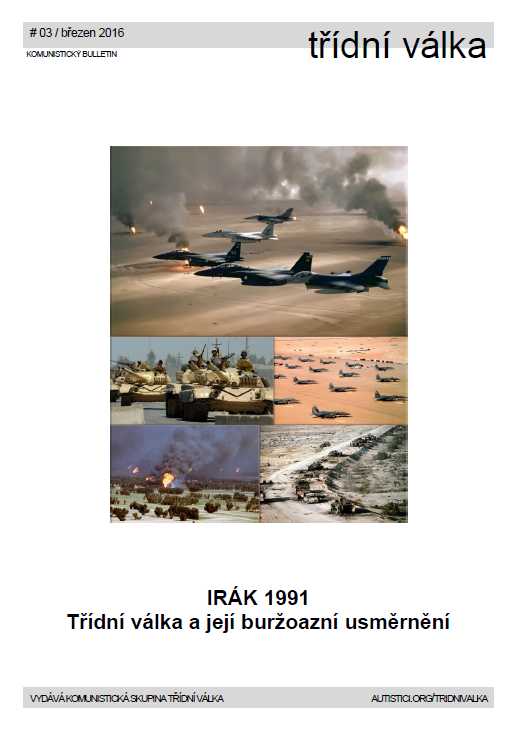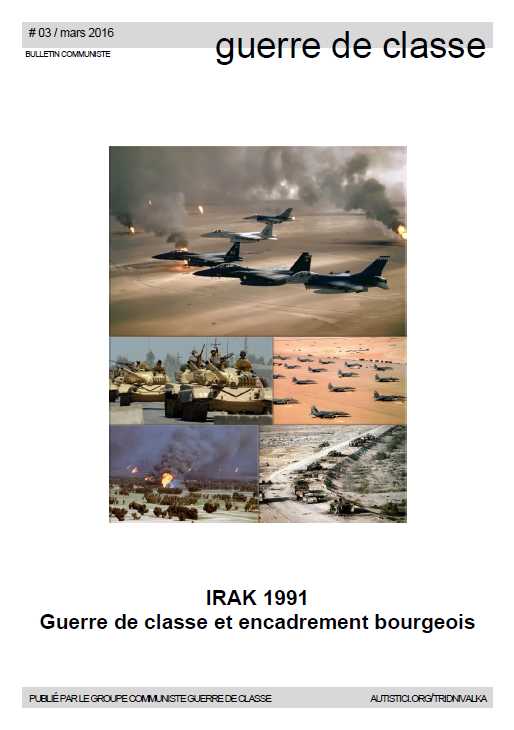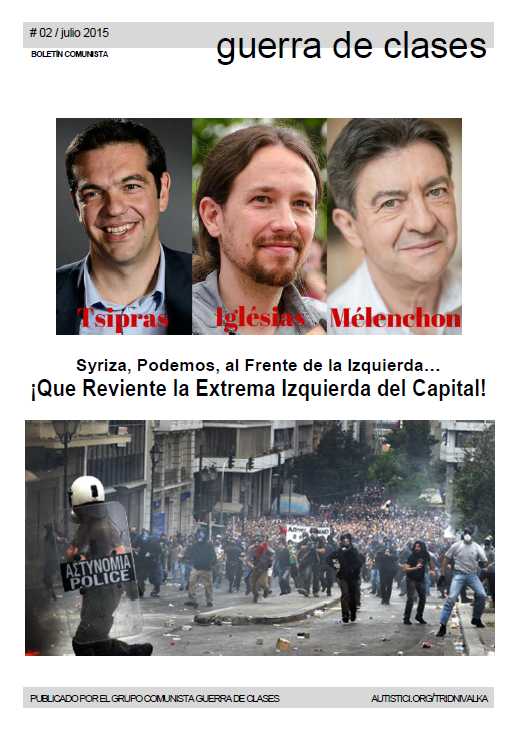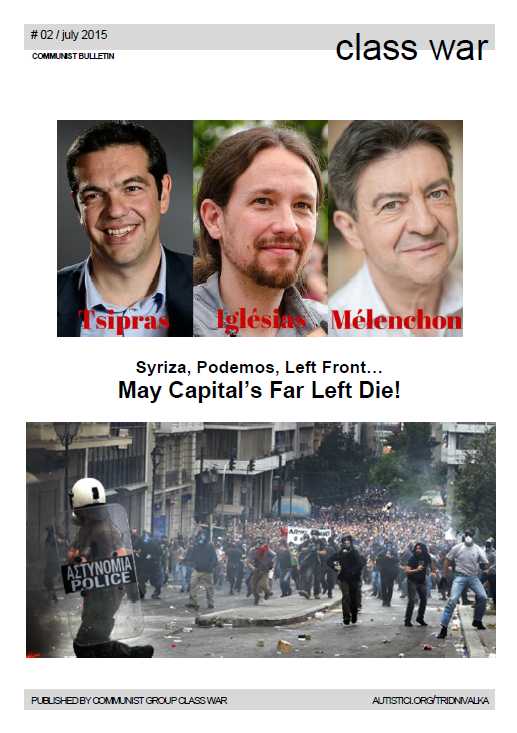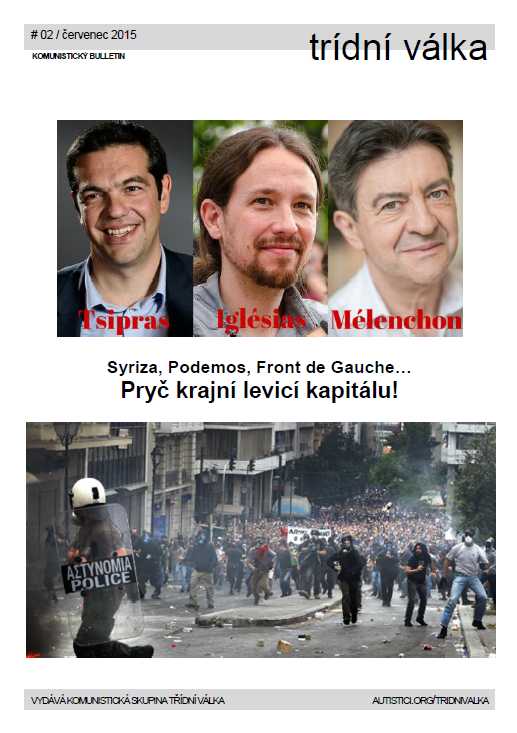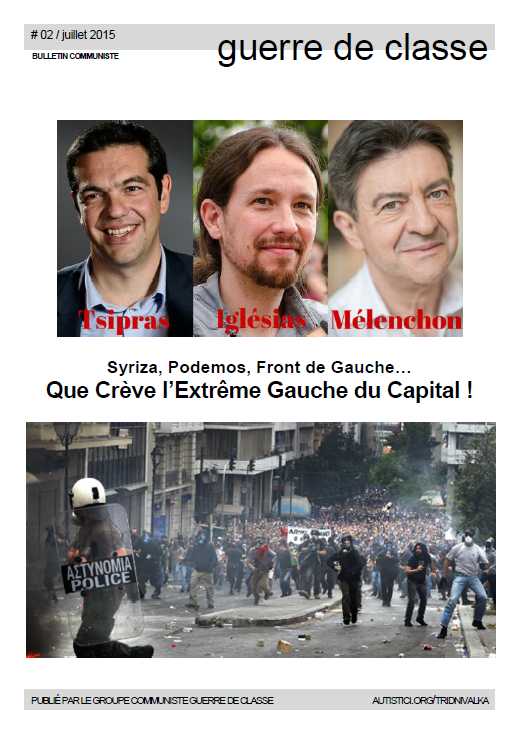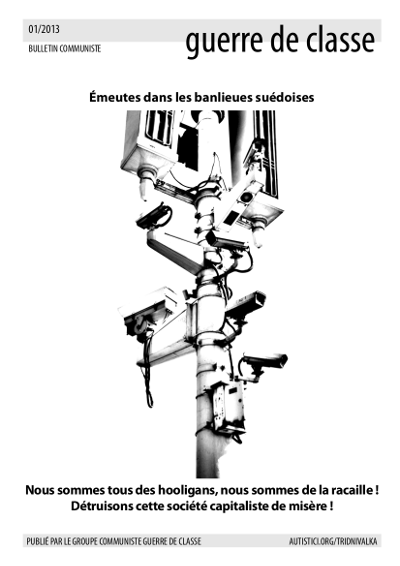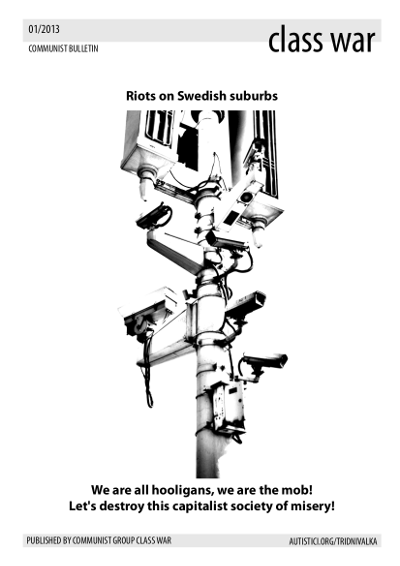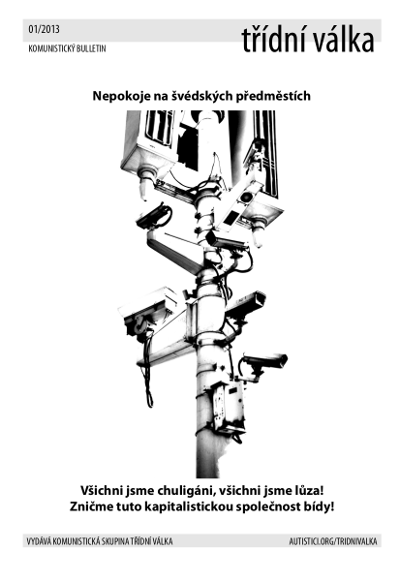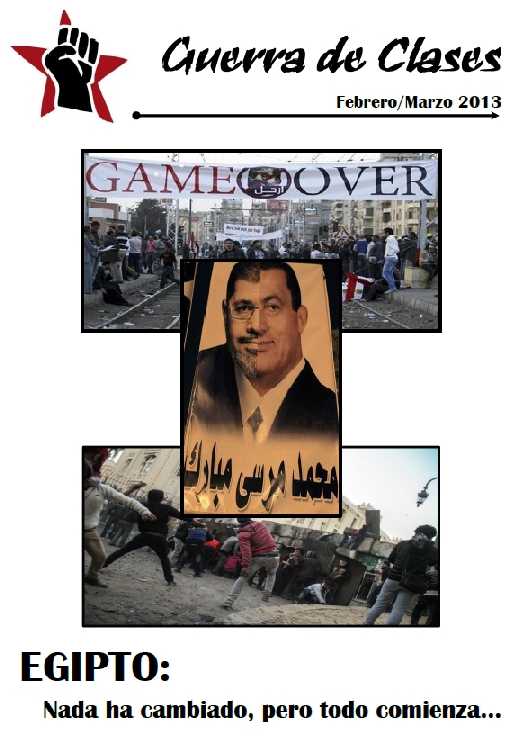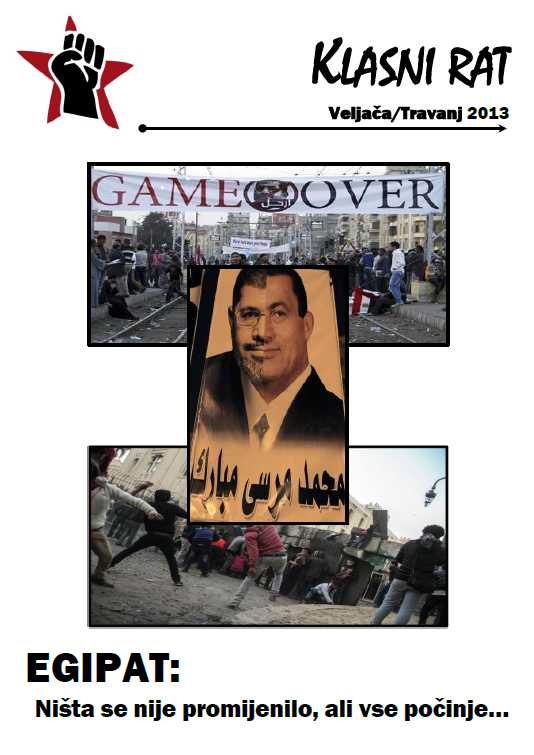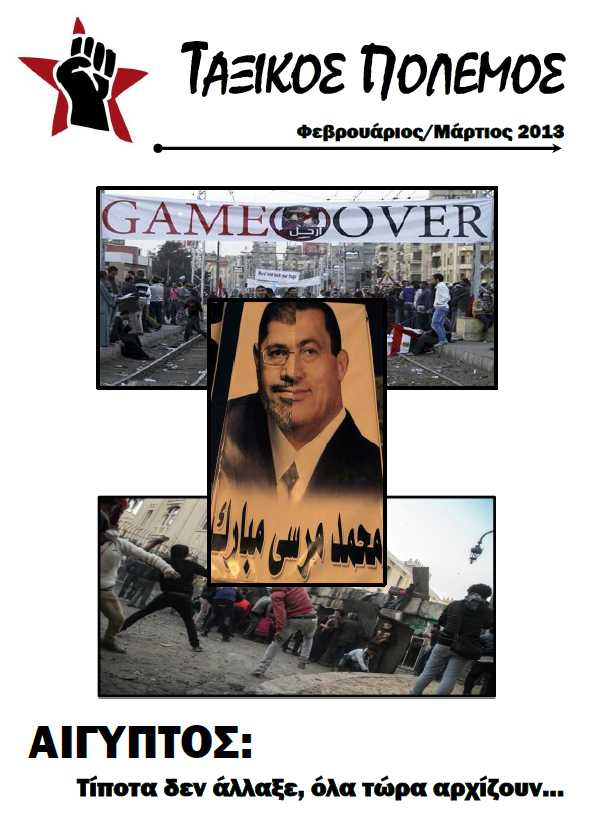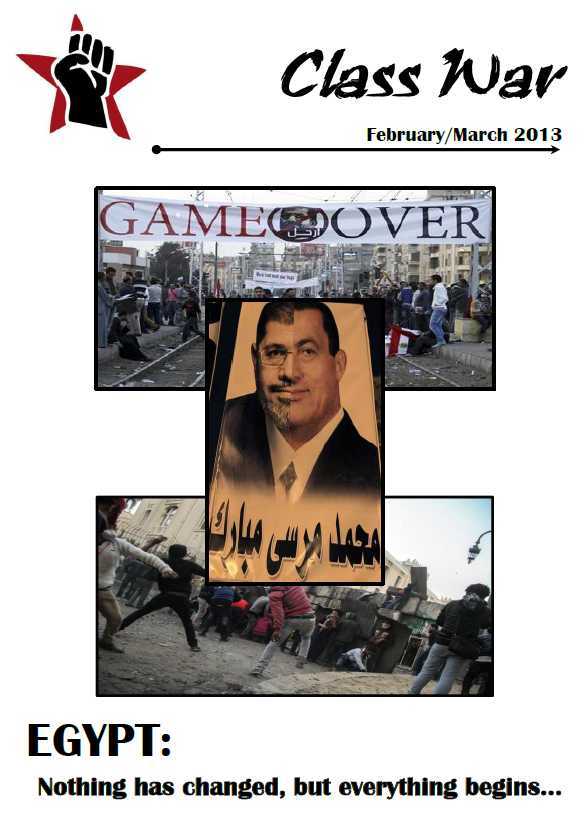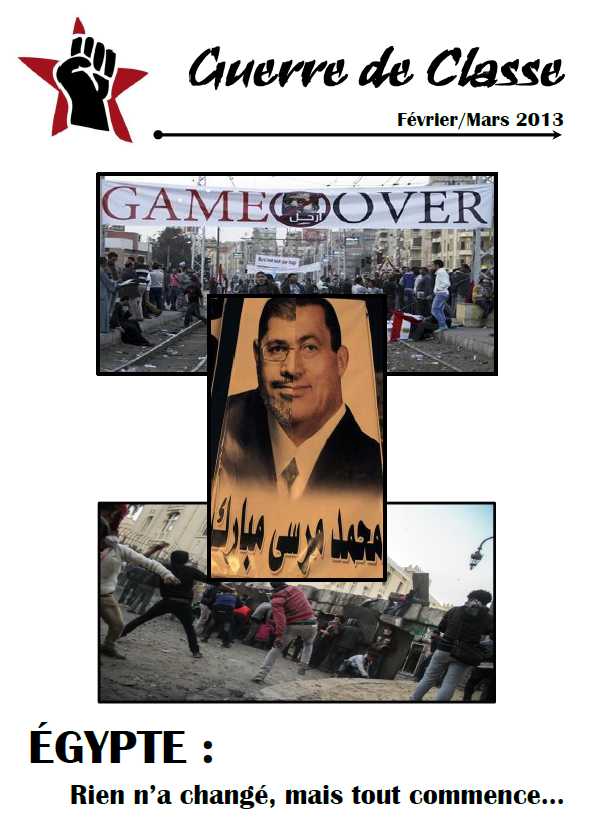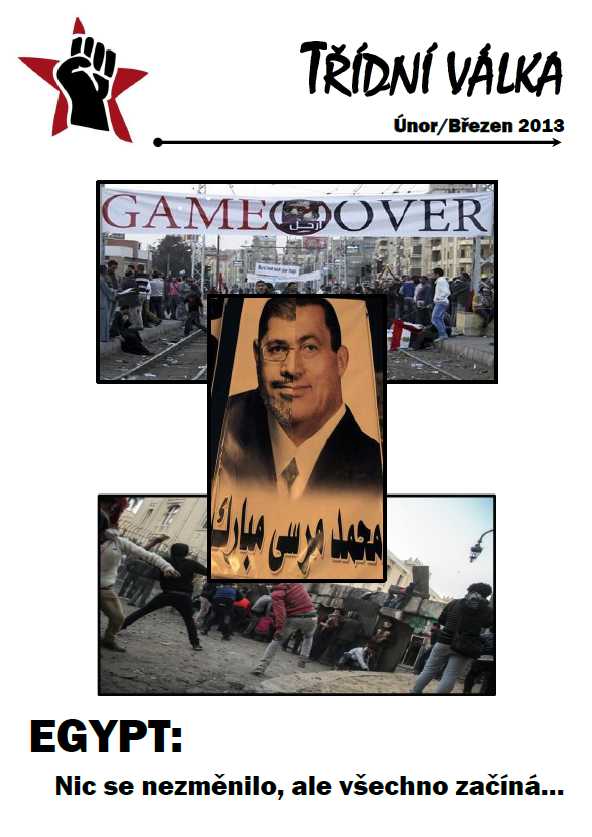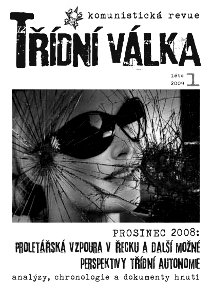/ English / Français / Čestína / PDF /
- Class War’s Presentation
- Theses on the war in Ukraine (ASI)
- Capital’s war in Ukraine (Clandestina)
- Your wars – Our dead (FAO)
- Afterword: Revolutionary defeatism (Class War)
Class War’s Presentation
We present here three texts (which we have translated into French) originally published on the initiative of the cluster discussion “Balkan Anarchists Against War” at the Balkan Anarchist Bookfair which took place in Ljubljana, Slovenia in July 2023 (BAB 2023).
We have a number of things to say about both the general framework in which this discussion took place and the texts themselves.
First of all, let’s set out the reasons why we didn’t physically attend this bookfair, after corresponding with the organizers and discussing with several comrades around us who were asking themselves whether or not to go.
The main drawback was the position (or the lack of a clear position) the BAB 2023 organizers finally adopted on the anarchist movement’s attitude towards the war in Ukraine.
The crucial question we all worry about is the support of some anarchists but also of whole organizations for the Ukrainian side in the current war and the space that could be given to them in BAB.
We closely follow the discussion on the topic of revolutionary defeatism versus supporting one war side, discussion that is currently going on in the movement and that also touched the bookfair organizers as they have scheduled a cluster discussion “Balkan Anarchists against War” which dealt with this question.
For us, as any discussion that is not meant to be just a sterile presentation of two opposing views, the discussion about the anarchist attitude towards war must be based on shared assumptions, on common attitudes, which for us are anti-militarism, internationalism and revolutionary defeatism. In brief, the refusal to support one or the other warring side.
If the anarchist movement (and, more generally, the proletarian movement that embodies the need to abolish capitalism as a whole) is to discuss what to do in war, it must discuss how to organize resistance to it within a revolutionary perspective (concrete actions as well as programmatic positions), not which side to support.
For us, giving space to warmongers in the anarchist movement (in the proletarian camp) and its discussion means preventing this very discussion about the vital issues of the proletariat.
At the same time as the preparations for BAB 2023, we came across an interesting stance from German speaking comrades entitled Warum wir dieses Jahr nicht auf das ABC-Fest fahren1.
We shared their opinion that organizations like “Solidarity Collectives” and others, “who want to applaud the anarchists’ authoritarian ideas (war mongering), should not be offered a platform by the anarchists. Who, with manipulative means […] works to stifle debates and at the same time strives to mobilize anarchists into war, in our opinion, had no place at an anarchist event.”
We also agreed with them that we have to “stand by the side of all those affected by the war, regardless of which state occupies the territory, whether Ukraine or Russia, as well as everywhere in the world, and declare our solidarity with all those who fight with libertarian intentions against the slaughter in the interests of various capitalist ruling factions, whether anarchists or not!
No solidarity with those who want to fight for their country, their “people” or the supposedly lesser democratic evil, regardless of whether they call themselves “anarchists” or not!”
To tell the truth, the response we received at the time from the BAB organizers was not very clear, and was far from convincing us to take part in the event. Certain militant structures (in Greece, Germany, France, in Czechia…) also expressed their doubts and disapproval. “French” comrades, for example, explicitly told us the following: “We had the idea of going, but we became discouraged when we learned that part of the French anarchist milieu was going, in the manner of a class trip, which promised nothing good in terms of the quality of debate.
The reason why we waited several months before publishing these three texts is that we first needed them to fuel our discussions, and then we wanted to get enough feedback so that we can form a real opinion about what really happened at the bookfair, and to write as a result a substantial introduction/presentation to frame this publication.
Nevertheless, the “Final statement” that the organizers of BAB 2023 quickly published on their blog was yet quite eloquent: hardly a word about the war in Ukraine, and even less about the rejection of all warring parties, about the need to support revolutionary defeatism on both sides, etc. Instead, the “Final statement” wallowed in questions related to the real class struggle but above all and fundamentally disconnected from the latter: the primacy of feminism, anti-racism, anti-fascism, struggle against patriarchy, intersectionality, defense of the LGBT community, etc. In short, everything that constitutes the most classic modern “ideological anarchism”: refusal of the struggle against exploitation considered by the libertarian supporters of the reforms of capital as “economic reductionism”, and consequently refusal of the class struggle against capitalism (whether they agree or not, whether they are conscious of it or not), and therefore the primacy of how to organize in a parallel world within the fringes of what is their emblematic obsessions: domination and oppression…
What seems obvious in any case is the lack of clear demarcation criteria for the organization of an event that looks more like a “family reunion” (in this case, the anarchist ideological family) than a genuine international meeting where the comrades present discuss programmatic advances, ruptures with everything that (consciously or unconsciously) contributes to reforming and thus maintaining the totality of the capitalist dictatorship (in times of both “war” and “peace”), and how to organize against the two warmongering camps, which in the final analysis only defend the same bourgeois order, whatever color it is clothed in…
And as proof of the lack of criteria about who is invited to take part in this event, here’s what was merely stated, based on the testimony of two “Iranian” militants who attended the bookfair (testimony published in Spanish): “Another noteworthy point was the organizers’ insistence on avoiding at all times behavior of ill-will [comportamientos animosos] between people with different ideas, particularly with regard to the Russia-Ukraine/NATO war. The refusal of any propaganda in favor of war was among the guidelines of the event.”
The logical and provisional conclusion of the above is that everyone was invited: supporters of the Ukraine (i.e. “pro-war”) and those who defend the only proletarian line, i.e. revolutionary defeatism and internationalism. And all this “beau monde” (reputed to belong to the same ideological family) was supposed to discuss in harmony, avoiding “behavior of ill-will”! If there were no question of war and massacres here, if there were no question of imposing the reinforcement of social peace by the terrorist recruitment of our class into one bourgeois camp or another, it would be hilarious, so much so that all this family harmony is to be puked on!
To say the least, and that’s an understatement, although the organizers of BAB 2023 thought they were doing their utmost to defend an internationalist and defeatist revolutionary position (and it’s true that, according to the comrades who attended it, this was the general mood at the event), this was done without any rigor, without any logic, without taking adequate measures to really prevent defensist “anarchists” from pouring out their warmongering propaganda: i.e. by imposing clear demarcatory criteria, and by not inviting groups who take a stand for one bourgeois camp against another (in this case, very often the camp of the Ukrainian State, or more rarely that of the Russian State), who wave the flag of anti-imperialism against an imperialist “aggressor” (when both camps are fully imperialist)…
To say the least, and that’s an understatement, the organizers of BAB 2023 were deluding themselves, preferring to focus on uniting the “anarchist” family rather than breaking down these ideological shackles and promoting genuine proletarian critique and practice.
“Bookfairs”, “Summer Camps”, “International Meetings”, “International Conferences”… whether they’re organized by one or other of the political families that claim to represent the historic interests of the proletariat (to put it simply: ideological anarchism, on the one hand, and the “Left Communism”, on the other), we realize that a merciless criticism of what might be called “conferentism” is really more than necessary. Why and when should revolutionaries meet, what are the criteria for such meetings, how can we distinguish ourselves from academic discussions whose only “interest” consists in ranting and raving about the pseudo “political program” of one’s little sect?
But also, how to organize contradiction within these events!? How can we “participate” without actually compromising ourselves by “taking part” and endorsing this whole academic circus!? How do we organize the revolutionary (but still somehow confused) elements that are there due to lack of “something else”, “something serious”, how do we help them to break away and denounce what can in no way be a real level of organization of our class antagonism…!? We hope to come back to all these crucial issues very soon…
Now, some will claim that with such stances, we really have nothing to do with “the anarchist movement”, as the Czech Anarchist Federation already asserted a few months ago about us: “It is important to note that the group Třídní válka is not part of the Czech anarchist movement, nobody has ever seen it in the streets, nobody has ever heard of it organizing any real action and it is questionable whether it has more than one member.” Let’s recall our scathing response at the time, a response not to the AFed of course, but to the comrades who expressed their support:
“Class war considers itself to be a part of the practical and historical movement of the proletariat and its struggle against the dictatorship of capital. A revolutionary social movement in which the exploited class constitutes itself as a revolutionary class, as a worldwide force united in the struggle against its historical enemy, the bourgeoisie, as a force that will eliminate all domination, all exploitation and all States. (…) Let us add that if we subscribe to an anarchist or communist revolutionary movement, we are in no way part of the “anarchist family”, which is not based on a revolutionary program, but on various degrees of affinity within anarchism as an ideology. We stand on the side of anarchy against the ideological “anarchists” who support national liberation struggles and therefore the bourgeois State and capitalism!”
For us, and for the historic communist movement to abolish the existing situation, the generic family name for the whole plethora of groups, organizations, structures, parties… that work to restore the facade of capitalism while speaking to and in the name of the workers, is “Social Democracy”, which comes under many different surnames: anarchism, Marxism, Bolshevism, Proudhonism, Leninism, Trotskyism, Stalinism, Titoism, Castroism, Guevarism, ad nauseam… Various methods of action or means are used to accomplish this mediocre activity of sabotaging our struggles: e.g. conferentism, democratism, democratic confederalism, workers’ or direct democracy, self-managementism, councilism, anarcho-syndicalism, trade-unionism, revolutionary syndicalism, base unionism, national liberationism, national-social-liberationism, ad nauseam… All of these are used for the same purpose and will all be swept away by the devastating impulses of the class war and thrown into the dustbin of history.
We come now to the texts themselves, which, as we have said at the beginning of this presentation, originate from the “anarchist” movement. In fact, two of these texts are issued by local sections of international “anarchist” structures for which we have a priori no great sympathy, since they historically represent what we denounce above as “ideological anarchism” or “the anarchist family”, which have always acted as brakes on the proletariat’s programmatic ruptures with social democracy and the capitalist order. Both organizations are, on the one hand, the anarcho-syndicalist International Workers’ Association (IWA) and, on the other, the International of Anarchist Federations (IAF)…
Nevertheless, if we wanted to extract these texts from their yoke and ideological straitjacket, and bring them back to the heart of our proletarian community of struggle, which doesn’t give a damn about ideological families and their formal structuring, it’s precisely to bring out all the richness of the discussion running through the revolutionary anarchist milieu (and other militant milieus too!) against the war in Ukraine. For beyond a number of assertions that do not break (or break only a little!) with ideologies such as that of a “lesser evil” to be defended, these texts globally stand in our camp, that of the world revolution.
The first text, “Theses on the war in Ukraine”, a contribution from Serbia’s Anarcho-Syndicalist Initiative (ASI-IWA), is rather classic. One paragraph, and therefore one line of argument, in fact caught our eye:
“While many comrades feel that it is important for us to say that we are against both sides in this war, which is undoubtedly true, we need to remember that we are not preachers but revolutionaries, and that it is not what we say that counts, but what we do. Therefore, apart from abstract proclamation that we are opposing both sides in the war, we have to concentrate our practical activities on something that is not only politically right but also only thing physically possible – fighting against our ruling class and its armies and warmongering.”
This stance has caused controversy within anarcho-syndicalist circles, with militants from the French CNT writing to us: “It’s an interesting document that we largely endorse, but it does have a few important gaps – as does the whole anti-war movement, a compilation of which you published recently: while the movement analyzes the nature of the Ukrainian government at great length, it says nothing (or almost nothing) about the nature of the regime in the Russian Federation. In our view, this lacks equilibrium, and can give the impression that our criticisms are more against one side than the other (even though we know this isn’t true). The “main enemy” theory as set out in this text (and in many of the texts you share) seems to us to be completely wrong. This “main enemy” theory in fact leads us to take sides with one or other of the belligerents, and is a mirror response, identical even if inverted, to those who say that the main enemy is the Russian Federation. On the contrary, we need to insist and repeat that the main enemy is capitalism and nationalism, that they are equally rampant on both sides of the front, and that we need to fight them everywhere, always.”
As a reply to such understanding of the things, we have to insist that we have to directly organize across the “enemy line”. Not doing that would mean to sacrifice the comrades in the “enemy camp” to the repression of the capitalist State, to let them bleed on the front, to abandon their struggle against “their own” bourgeoisie and push them to accept the inter-class unity of “social peace”, which can only ever benefit the bourgeoisie. In the CNT statement we can see the tendency to sacrifice the proletariat in the “enemy camp” and its struggle against “their own” bourgeois structures. The same approach appears also in case of the pro-Palestinian current in the recent movement against the Israel/Palestine war, but it exists also in many “anti-NATO” or “anti-Western imperialism” expressions in the movement against the war in Ukraine.
Comrades in countries like Serbia or Turkey, who in the recent capitalist conflicts sit “in the saddle”, should assume the role of the militant links facilitating the internationalist organization of the militants living on the opposing sides of the bourgeois conflict. In particular case of Serbia, we understand and trust the analysis of the comrades, providing the evidence that Serbia is progressively more and more falling into the “NATO camp” and organizing the struggle against the “NATO camp” military efforts in Serbia is the most important. But at the same time, the concrete militarist effort of Russian State in territory of Serbia – like recruitment centers of Wagner mercenaries, deliveries of weapons and military material to Russia, etc. cannot be ignored – on the contrary it has to be denounced, opposed, sabotaged and attacked!
In order to better explain the ASI’s courageous stance, criticized here above by their French anarcho-syndicalist colleagues, let’s quote now the Internationalist Communist Group (ICG), which asserted that the enemy is our own bourgeoisie:
“In such circumstances, to declare oneself against the war and the bourgeoisie in general, without taking a concrete action against the increase of exploitation that all war generates is only a simple propaganda formula and not a revolutionary direction for action. In effect, bourgeois war concretises itself above all else as the war of a state against “its” proletariat, that is to say against the proletariat of that country, to grind it down, to liquidate the revolutionary minorities and to drag it progressively into the bourgeois war. This shows that it is indispensable, inescapable, indisputable to assert the fact that “the enemy is in our own country”, that it is “our own bourgeoisie”, “our own state”. It is in the struggle to bring about the defeat of “its own” bourgeoisie, of “its own” state that the proletariat really assumes internationalist solidarity with the world revolution. Or, to speak from a more global point of view, the world revolution is constituted precisely in the generalisation of the revolutionary defeatism of the world proletariat.”
And the ICG to continue:
“Historically, revolutionaries have also distinguished themselves from centrists by their appeal for the independent organisation of soldiers against officers, for the leadership which they give to the concrete action of sabotaging the army, by the call to shoot “your own officers” (and by their energetic struggle to put this into practice), by the fact of turning rifles away from the “external enemy” and pointing them at the “officers” of the fatherland.
In fact, the experience of war and revolution, and in particular the concrete experience of what is called the “First” world war has allowed us to clarify the point that the call for revolutionary struggle against bourgeois war is completely insufficient and centrist in practice if it is not accompanied by its practical concretisation, that is to say open struggle against “its own” bourgeoisie, for the defeat of “its own” state.”
And finally, here’s what the ICG has to say about all the sniveling pacifists:
“During the so-called First World War, the Centre of the Second International (in opposition to its Right which declared itself for “defence of the nation”) claimed to oppose revolution to war and launched slogans as radical as “war on war”. But, at the same time, it opposed revolutionary defeatist calls because, so they said, (like all the army generals!) that would benefit the national enemy, and so they ended up proposing slogans like “neither victory nor defeat”.”2
Now, without wishing to hammer the final nail into the coffin of anarcho-syndicalism, let’s recall its “glory days” and its total “bankruptcy” in the days before the outbreak of the two great bloody orgies that set the world of value ablaze in the twentieth century.
Let’s not forget that in the summer of 1914, many of the “working class organizations” that had openly declared to be anti-war (but without “venturing” to the point of defending the defeat of their own bourgeoisie), changed the side before you could say knife. For example, the French “revolutionary socialist” militant Gustave Hervé who had written in the newspaper La Guerre Sociale that we should “plant the national flag on the dunghill”, and who quickly joined the defense of “the country in danger”. Another example is the French CGT, the jewel of international anarcho-syndicalism at the time, which after years of anti-militarist propaganda, joined the ranks of war supporters and sacred union, making general mobilization feasible, or at least facilitating it without too many problems. The only people in France who tried to do something against the war preparations, against their own bourgeoisie, against their own exploiters, were genuine anarchist militants who had already long since broken with the CGT and anarcho-syndicalism, the latter ending up in the arms of collaboration with the French State.
And finally, let’s recall how Spanish anarcho-syndicalism ended up taking a stand for one bourgeois camp (that of the left, the Republic and anti-fascism) in the “civil” war, opposed to the other bourgeois camp (that of the clerical right and the military led by Franco). It was thanks to the CNT’s “critical support” that the Popular Front won the elections, and was thus able to develop an antifascist republican politics which practically opposed the proletariat’s boosts in its struggle for social revolution.
In the final analysis, this “civil” war was nothing more than a loophole through which the proletariat was lured away from its real class terrain on which it had been for years confronting its own exploiters in Spain. While the bloody battles that took place during the so-called “Spanish War” were never more than the preparations for mobilizing the proletariat into the future mass graves of the Second World War (in the name of the bourgeois polarization fascism versus antifascism), it’s clear that the role played by the Spanish CNT and by international ideological anarchism was to disarm our class, disarming it “politically”, “socially”, programmatically, and capsizing it from its class terrain, from the defense of its immediate and historic class interests towards the defense of one bourgeois alternative against another. In this respect, the CNT has played a direct part in enlisting the proletariat in the bourgeois war, and has therefore never defended true revolutionary defeatism and internationalism… Once again, the revolution will be sacrificed on the altar of defending a bourgeois camp considered as a “lesser evil”…
After this long digression on anarcho-syndicalism, let’s come now to the second text “Capital’s war in Ukraine”, contribution from Greece’s Clandestina group.
We obviously agree with their critique of nationalism and anti-imperialism, but on the other hand we discern some contradictory elements in the following positions: the support of “Rojava experiment” and the differentiation made of YPG from Ukraine’s “Territorial Defense”, the equation of “internationalism” with “supporting the Slavic Macedonian people’s right to self-determination in the 1930’s” by the “Greek Communist Party” (a position which was actually based on the alignment with the policies of the Stalinist Komintern) and the positive appraisal of anti-colonialism and the “global justice movement”.
About the so-called “Rojava Revolution”, let’s not forget that we’ve already published an entire bulletin dealing with this issue (bulletin No.13 – Summer 2021), and we don’t intend to develop it any further here. In Rojava as in Ukraine, it’s the same “misunderstanding” of the social matter, of what capitalism fundamentally is as a social relation, of what its State is and what its different levels of structuring are, that make militants who openly claim to be social revolutionaries fall into the trap of supporting any kind of “experiment”. To paraphrase Marx, what matters is not what you think of yourself, or what you claim to be, but what you actually do, in practice. So, in the particular situation of each of these two conflicts, all these defenders of Rojava or Ukraine are and will remain, until they break with their practice of supporting an eternal “lesser evil”, nothing else than auxiliaries obeying the orders of their respective headquarters, in short, in both cases “NATO’s anarchist brigades”…
And now for the third text, “Your Wars – Our Dead”, a contribution from the Federation for Anarchist Organizing FAO/IFA from Slovenia and Croatia, here are a few comments we’d like to highlight.
As for the previous text, there are very strong affirmations, but mixed with its contrary! Let’s first emphasize some of those very strong affirmations:
“Despite the importance of local factors, the war in Ukraine is not based in a local political conflict. Rather, Ukraine, its population, its landscape, its resources, cities and fields was chosen as the terrain of a military confrontation between two powerful capitalist centers. Geopolitically speaking the core of the issue is thus not Russia versus Ukraine and for sure not Russians versus Ukrainians. It is a battle between centers of economic and political powers that align themselves to two competing models of global political system and have at their disposal the military and other tools to stake their respective claims. Despite the many differences in their economic and political models both models are rooted in capitalism, militarism, nationalism and therefore necessity of large-scale exploitation and destruction. The war in Ukraine is thus not a war between people, but a war between great systems of capitalist domination. In it, people are only dying.”
And maybe now the most dialectical part of the text:
“As long as capitalism as a world system is not dismantled the states will remain the mechanism through which a tiny minority impose authoritarian rule over the world in such a way that requires war in order to reproduce itself. Thus, it can be claim again that capitalism is war. (…)
For us, the enemy in this war is war itself. For us, the states, which need the war in order to impose themselves over the population, are the enemy. For us, the enemy is capitalism that needs states and wars to perpetuate its grip on the world. For us this is the core of the anarchist analysis and politics. Without them the anarchism as a clear, specific political position and practice makes no practical or theoretical sense.”
Let’s now talk about what we absolutely didn’t appreciate: their stances about Yugoslavian myths of workers’ State under Tito’s yoke, etc. are very problematic and we completely removed these paragraphs from this brochure.
Back in December 2012, when a very short but very radical wave of struggle swept through Slovenia, we got in touch with local anarchists and exchanged a few arguments about these events. It emerged from this discussion, and generally speaking, that anarchists aren’t really “fans” of the concept of the dictatorship of the proletariat that they wrongly attribute to Leninist and Bolshevik tendency within the working-class movement. What is clear according to experience of our class is that the dictatorship of the proletariat has never existed nowhere in the world and historically. The so-called “dictatorship of the proletariat” that ruled in Russia, China, Cuba, Yugoslavia was nothing but a form of the pure and sheer capitalistic dictatorship over the proletariat, and worse in the name of “communism” and/or socialism that also never existed in real, except as a tendency in our class struggles and insurrections…
In this way we find the position developed in the text of the comrades towards Yugoslavian Tito’s regime very strange because even if the text doesn’t claim this “socialist” regime (what would be crazy for anarchists who are supposed to puke on all States) it nevertheless considers some sympathetic and popular aspects in it… Aleksander Simic (from the former class group Torpedo in Serbia) explained very clearly in his text “The workers’ movement in Serbia and ex-Yugoslavia” that the “dictatorship of the proletariat” in Yugoslavia was actually a dictatorship of the party, and we would even say a dictatorship of their party, that of the Bolsheviks, the Leninists, the Stalinists, the Titoists, etc. ad nauseam, these far left (and capitalist) Social Democrats!!!
But coming back to the real and genuine dictatorship of the proletariat, it’s nothing but how our class get organized to impose its human needs over the class of the capitalists: that’s to say, insurrection, expropriation of the expropriators, abolition of exploitation, private property, State, police, army, government, religion, money, wars… and therefore also oppression and domination!!!
If now the expression dictatorship of the proletariat doesn’t satisfy anarchists (and we can pretty well understand that), and in order to not stay on this formal linguistic terrain, you are of course free to find other words but please keep intact the real and genuine content of this process of abolition of the old order!!!
That being said, we wish you a good reading of this brochure…
Theses on the war in Ukraine
Input by Anarcho-syndicalist initiative ASI-IWA (Serbia)3
On war and anti-militarism
War has always been one of the essential attributes of all authoritarian systems through the history, as it is now one of the main hallmarks of the late-stage global capitalist system we are suffering under.
As all revolutionaries have been aware that the war is health of the state, and an important tool of the ruling class for the maintaining its power, anti-militarism is rightfully regarded as one of the basic anarchist principles. Principle which leads to repression, suffering, imprisonments and persecution of many of our comrades during the history of our movement. We should never forget this.
On the recent experiences of the (forgotten?) war in the Balkans
Some of us, anarchists from ex-Yugoslavian region of the Balkan peninsula, who are unlucky enough to have lived through and remember the Yugoslav wars of the 1990s, have ourselves directly witnessed civil war, nationalist bloodshed, imperialist aggression, sanctions, anti-war movement, colored revolution, brutal transition to neoliberal capitalism, mass impoverishment of the working class, retraditionalization and general lowering of the civilization level in our societies and Eastern Europe as whole. This is the reason why statements of the NATO politicians talking about Ukrainian war as a “first war in Europe after WWII”, which are based on their historical blindness caused by western chauvinism, are absolutely criminal and false.
Specially us, anarchists from the Republic of Serbia, apart from the above-mentioned things, had an experience of the proxy-war during the Yugoslav civil war. Slobodan Milošević, leader of Serbia (Federal republic of Yugoslavia), which was not an official participant in the war in Bosnia and Croatia, has been arming, training, organizing and directing Serbian forces in those places.
All this experience provides us with important insight into the nature of Ukrainian war, that might elude some of our comrades in the West. Thus, we see it as our obligation to focus attention of the comrades to some of these elements that we find important for the correct interpretation of the current inter-imperialist war between NATO and Russia, that is raging in Ukraine.
On the nature of Ukrainian state
All police forces and professional armies in the world have a tendency to draw in their ranks highly authoritarian personalities. This surrounding is perfect for fascists and right-wingers to thrive. Still, huge presence of fascists in those state structures, as it is omnipresent, does not define state as fascists or nazified. For a serious scientific analyses of the situation, which has always been proclaimed goal of anarchist ideology, we have to distinguish between political sympathies of individuals and /structural/ elements of the State that do affect the nature of the State we are analyzing. Not every horrible capitalist system is fascist, and to be able to maintain seriousness of our analyses we need to be able to clearly distinguish what we are talking about.
Ukrainian state, after 2014 coup, has become a nazified state. When we talk about Ukraine being nazified state we are not talking about nazis being a dominant political force there, as can be witnessed by the last parliamentarian elections in which open nazis had only relative small gains. We are talking about /structural/ elements that qualify Ukraine for such disposition. We are talking about openly neo-Nazi battalions of the Ukrainian army, such as Azov, Aidar and similar, we are talking about official contract signed between city of Kiev and neo-Nazi C14 organization, we are talking about mass rehabilitation and public reaffirmation of war criminals and WWII nazi collaborators such as Bandera etc. While rehabilitation of WWII nazis is not limited to Ukraine, but is prevalent in most of Eastern European countries after the fall of state communism, especially in Baltic states but in others too, nowhere has it taken the shape of structural adjunction, such as in Ukraine.
The fact that Ukraine is a nazified (again, not a nazi state), does not in any way imply support for Russia, neither it supports the lie of the Russian state that it is leading the war with the intention of “denazifying” Ukraine. Ruling class of Russia, which is leading the war for its own hegemonic reasons, is just using in its propaganda something that is true about Ukraine, and we should not avoid telling the truth just because some of our enemies are also talking about it.
On the nature of war in Ukraine
The war in Ukraine is an inter-imperialist proxy war lead by NATO and Russia, at the expense of population of Ukraine.
Russia is power which, even if it maybe does not check all the boxes needed for scientific labeling of the State as imperialist one, does play a role of imperialist power in this conflict. It is led by a ruthless, very conservative and hegemonic clique intended in establishing itself by force as one of the main players in this cutthroat capitalist world.
Biden and von der Leyen are Slobodan Milošević of XXI century, which are leading NATO side of this war, arming one of the armies and organizing everything for that side in the conflict. NATO tendency to spread and encircle Russia is, without a doubt, one of the main immediate reasons for this conflict.
If placed in historical context, and with understanding that EU is largely brought down to a position of US puppet in international relations, this war can be seen as third attempt of German imperialism in 110 years to establish control over strategic resources of Russia via war. Together with breaking of decisions of demilitarization of Germany from 1945 Potsdam conference, this tendency is very worrying and should strongly alarm the working class and anarchist movement in Europe.
War is not lead only via direct military clashes, via funding, arming, training, organizing and directing armies, but also by imposing sanctions. As we, anarchists from Serbia, have lived during the 1990s under strict regime of sanctions, we have experience, apart from rational understanding, that confirms that sanctions are war against the population of the sanctioned state. It is never the ruling class that suffers from sanctions: in the case of war in Ukraine, Putin and his cronies will not be the one who will have difficulties in obtaining needed medicaments and other necessities, but ordinary working-class people. This is why all states that are sanctioning Russia are part of this war, leading the war in fight against the Russian population. And this is why anti-militarist struggle must include fight against sanctions.
As with all wars, this war has led to rising of nationalism and chauvinism. In this context, for us as Balkan and European anarchists, it is important to underline anti-Russian racism that is prevalent in the EU, discrimination of people of Russian (and Belarusian) origin, denial of their right to move, study or work freely, banning of Russian culture, etc.
On the response of anarchists around the world to Ukrainian war
Like in the case of the WWI, as Malatesta noted, many anarchists have forgotten their principals, when faced with international confrontation of this magnitude. But, at least for the time being and while conflict has not exploded yet, majority of the /organized/ anarchist movement is still managing to hold – more or less – anti-militarist positions. It is of utmost importance to fortify this position ahead of events that are coming.
We have to remember that our primary role as anarchist revolutionaries – and especially during capitalist and imperialist war conflicts – has to be fight against our own ruling class. We should never allow our ruling class to convince us that the ruling class that is the enemy of our own masters should be primary target of our activities. In case of war in Ukraine this means for anarchists active in NATO states or NATO controlled states, that our primary target has to be NATO side of the war.
While many comrades feel that it is important for us to say that we are against both sides in this war, which is undoubtedly true, we need to remember that we are not preachers but revolutionaries, and that it is not what we say that counts, but what we do. Therefore, apart from abstract proclamation that we are opposing both sides in the war, we have to concentrate our practical activities on something that is not only politically right but also only thing physically possible – fighting against our ruling class and its armies and warmongering.
Sadly, many of anarchist comrades in the West have fallen under the influence of their ruling class propaganda and, some consciously and many unconsciously, have started reproducing and supporting positions that are objectively in line with Ukrainian nationalism, western chauvinism, and European and US imperialist nationalism.
While some of uninformed comrades in the West could believe in warmongering propaganda about huge numbers of “anarchists” and “anti-authoritarian” fighters that are part of NATO side in war in, we, who are active in the anarchist movement in Easter Europe for decades now, know for a fact that this numbers are pure fiction and that up to the war organized libertarian movement in Ukraine was quite small and weak. In that context providing arms and other support for any of the soldiers in the front is nothing more that participating in the inter-imperialist war and supporting one of the warring sides, which is in stark opposition to our principles and ideals. We, of course, understand that in situation of war joining army could sometimes be only mean of survival, but we vehemently disagree that those activities could in any way be labeled as anti-authoritarian and excuse for supporting them as something that anarchist movement should be engaged in.
Majority of non-European comrades are holding correct anti-militarist line regarding the war in Ukraine, but in many cases this position is held because of the wrong belief that this war is same as many other recent wars, and that it is only because of prevalent eurocentrism that it is taking so much of global focus. While eurocentrism is a big problem, linked with structural relations in the global capitalist system, it is important to underline that this war is not like any other war in recent years. The war in Ukraine is an inter-imperialist proxy war lead by NATO and Russia, with a dangerous potential and tendency of escalating and becoming WWIII or even nuclear confrontation, which could not be said for wars such as Yugoslav civil war, Iraq or Afghanistan wars etc. On the other hand, expected war between NATO (and AUKUS) and China in Taiwan, has similar potential to the war in Ukraine.
We feel that /No war but class war/, a stance that is questioned (in time of war!) by some who are claiming to be anarchists, is only position acceptable from the perspective of our anarchist ideology, while anything else would amount to warmongering and servicing of imperialist powers.
On the response of Balkan anarchists to the war in Ukraine
Concretely in Serbia: in period before the war Serbia was publicly claiming to be militarily neutral as it held joint military exercises with NATO and Russia in 10:1 ratio – 10 with NATO comparing to one with Russia. Since the war started, Serbia proclaimed neutrality in the war, which it is in reality keeping by yet not imposing sanctions on Russia, but also proclaimed terminating all joint military exercises with both sides. But, just after one year of war, Serbia restarted its joint military exercises, now /only/ with NATO, while Serbian produced guns and ammunition are being sent in huge volumes to NATO side in the war and territory of Serbia is used for the transport of military equipment to Ukraine, again to NATO side in this bloodbath.
Whole Balkans is a NATO zone of influence, with majority of states in it being official part of NATO, while several others states (including Serbia) and colonial territories being under overwhelming control of NATO. This is why our struggle in the Balkans against the war has to be focused on fighting NATO and its armies.
Capital’s war in Ukraine
9 notes and some thoughts4
Input by Clandestina (Greece)5
What has been the deadliest war of the 21st century? Many would answer the war in Ukraine. Others would say the war in Syria. Some would mention the wars in Iraq or Afghanistan. A few, more informed, readers could name the war in Yemen. In fact, Ethiopia’s unknown war (the “Tigray conflict”, 2020-2022) is probably the deadliest of the 21st century, with around 600,000 civilian deaths, “without including combatants on both sides, which some military intelligence sources put at between 100,000 and 200,000.”6 For a war to make it in the main news, it must either involve people that the privileged citizens of the West can identify with, and/or have a political significance (a recognizable framework of importance) for global capitalism.7 The war in Ukraine signals a decisive move towards a bi-polar world. Some anarchists and leftists are calling to support the Ukrainian troops against Russian imperialism, other anarchists and leftists put the blame on NATO, arguing that the strengthening of the “Russia-China alliance” will weaken the power of Western imperialism. Many people in the countries formerly known as “Eastern Europe” are thinking “should we talk about capitalism now that we are so close to war?”, fascists are attempting to win followers by rebranding themselves as “antiwar”, many are lost in geopolitical analyses, and most people have got used to this war and only care when, every few weeks, the threat of a nuclear warfare increases8. The mass media and “the voices of reasoning” call us to support “our” capitalism, threatened by Putin’s and Xi Jinping’s version, while in the capitalist periphery the Russian private military company Wagner poses itself as an agent of anti-imperialist struggle. Although capitalism, as a global system of death and destruction, attacks us in multiple ways, resistance to capitalist wars is mainly connected with anti-imperialism. But “imperialism” as a concept is creating confusion about the nature of capitalism, while “anti-imperialism” in practice entails succumbing to state power and accepting nationalism as a “necessary evil”, a trojan horse for nationalism and state-building. If we do not create a clear position soon, a position that will spread globally beyond borders, with all the practical work this entails, opposing all false options presented by the “new multi-polar world-in-formation”, we will end up with a future where there will be no choice at all.
If we want to save the future, we have to repair the past, that is free ourselves from the burden of the manufactured concept(s) of the past — and the present.
1. Imperialism is not the last but the first stage of capitalism
According to a common (and manipulable) misconception, imperialism is relatively recent, consists of the colonization of the entire world, and is the last stage of capitalism. This diagnosis points to a specific cure: nationalism. It is offered as the antidote to imperialism, since wars of national liberation are said to break up the capitalist empire.
This diagnosis serves a purpose, but it does not engage with any real event or situation. We come closer to the truth when we turn idea on its head and say that imperialism was the first stage of capitalism, that the world was subsequently colonized by nation-states, and that nationalism is the dominant, the current, and (hopefully) the last stage of capitalism. The facts of the case were not discovered yesterday; they are as familiar as the misconception that denies them.
(Fredy Perlman. The Continuing Appeal of Nationalism, 1984)
2. For hundreds of years, resistance to colonialism and capitalism didn’t entail creating states and nation-building
The modern representations of the proletariat as a European, industrial working class occulted the first experiences of solidarity, self-organization, and self-emancipation displayed in the Atlantic by the “many-headed hydra” comprising sailors, pirates and deported slaves. Living in an age of machines and factories, Marx did not consider such experiences as significant for the future.
[Enzo Traverso, Left-Wing Melancholia: Marxism, History and Memory, 2017 (Malinconia di sinistra: Una tradizione nascosta, 2016)]
The emphasis in modern labor history on the white, male, skilled, waged, nationalist, propertied artisan/citizen or industrial worker has hidden the history of the Atlantic proletariat of the seventeenth, eighteenth, and early nineteenth centuries. That proletariat was not a monster, it was not a unified cultural class, and it was not a race. This class was anonymous, nameless. (…) Like Caliban, it originated in Europe, Africa, and America. It included clowns, or cloons (i.e., country people). It was without genealogical unity. It was vulgar. It spoke its own speech, with a distinctive pronunciation, lexicon, and grammar made up of slang, cant, jargon, and pidgin—talk from work, the street, the prison, the gang, and the dock. It was planetary, in its origins, its motions, and its consciousness. Finally, the proletariat was self-active, creative; it was—and is—alive; it is on a move.
(Peter Linebaugh and Marcus Rediker, The Many-Headed Hydra. The Hidden History of the Revolutionary Atlantic, 2000)
3. Actually, for an even longer period, millions of people all around the world fled away from state-control and oppression
For two thousand years the disparate groups that now reside in Zomia (a mountainous region the size of Europe that consists of portions of seven Asian countries) have fled the projects of the organized state societies that surround them—slavery, conscription, taxes, corvée labor, epidemics, and warfare. James Scott (The Art of Not Being Governed – An Anarchist History of Upland Southeast Asia, 2009) redefines state-making as a form of “internal colonialism” and tells the story of the peoples of Zomia from the perspective of stateless people by choice: “hill peoples are best understood as runaway, fugitive, maroon9 communities who have, over the course of two millennia, been fleeing the oppressions of state-making projects in the valleys – slavery, conscription, taxes, corvée labor, epidemics, and warfare.
Zomia is […] knitted together as a region not by a political unity, which it utterly lacks, but by comparable patterns of diverse hill agriculture, dispersal and mobility, and rough egalitarianism, which, not incidentally, includes a relatively higher status for women than in the valleys.”
We can find similar cases in other parts of the world: Ernest Gellner (Saints of the Atlas, 1969) makes it abundantly clear that the demarcation line between Arab and Berber is not, essentially, one of tribe, civilization, let alone religion. Instead, it is a political line distinguishing the subjects of a state from those outside its control. Pierre Clastres (Society against the State, 1974) argues persuasively that the so-called primitive Amerindian societies of South America were not ancient societies that had failed to invent settled agriculture or state forms. On the contrary, they were previously sedentary cultivators who abandoned agriculture and fixed villages in response to the dire effects of the Conquest, i.e. both disease-induced demographic collapse and colonial forced labor. The maroon communities in Brazil, called “quilombos” (Palmares, 1605–1694, the largest one, had perhaps twenty thousand inhabitants), home to not only escaped enslaved Africans, but also to Indigenous peoples, and poor or marginalized Portuguese settlers, were another case – their legacy survived until the late 19th and early 20th centuries, in the form of Brazil’s “social bandits”, the cangaceiros.
In our part of the world, we had tribal populations living in the Balkan Mountains, often completely independent of Ottoman rule, or, more to the East, the peoples still living in the Kurdish mountains. All these areas were also places of refuge with a characteristic feature: “a patchwork of identities, ethnicities, and cultural amalgams that are bewilderingly complex” (Scott, 2009). In the beginning of the 20th century, I.W.W. was the only cross-border labor movement’s organization that kept the spirit of this planetary proletariat.
4. Anti-imperialism is not something emancipatory but an antechamber to nationalism
Central to the Leninist concept of imperialism is the notion that ambiguous capitalism that brings intensified exploitation, together with the possibility of emancipation (as described by Marx and Engels) has turned circa 1900 into entirely “negative” capitalism. The latter is “monopoly capitalism” characterized by finance capital, a corrupt workers’ aristocracy and imperialism and needs to be fought and destroyed by any means necessary. “Totally bad” as opposed to “ambiguous” capitalism is complemented by the notion of “bad, perverted nationalism”, i.e. imperialism, versus good, benign nationalism (as in “healthy patriotism” etc.).
The Leninist concept of the right of nations to self-determination is historically rooted in the nineteenth-century idea, then shared by liberals and democrats, that nation-building overcomes late-feudal atomization and creates, within a unified national society, the conditions for emancipatory movements.
Arguably there is an element of orientalism in the Leninist assertion that the “peoples of the East” need nation-building as the first stage of emancipation, whereas those in “the West” have passed this “stage” and are ready for class struggle unencumbered by nationality and ethnicity. (The realpolitics of “socialism in one country” quickly replaced even this geographically limited anti-nationalist stance.)
[Marcel Stoetzler. “Critical Theory and the Critique of Anti-Imperialism”, The SAGE Handbook of Frankfurt School Critical Theory, V3. 2018]
During the so-called cold war, “anti-imperialism” was used to turn colonized populations around the world into nation states under the control of local communist parties and bourgeoisies in order to create a global, also imperial, system centered on the USSR (and later on China too). The attachment to the military machine of the Soviet empire would protect the new nation-states from the plunder of their raw materials by the “imperialists”. Of course, the “homeland of socialism” would undertake that “exploitation” of natural wealth, while its regional allies were to undertake rapid industrialization in order to reverse the “uneven development” “imposed by imperialism” – an alternative description of “primitive accumulation”, but for “the good of socialism”.
5. Nationalism is not an enemy of capitalist cosmopolitanism, it is its instrument
With their bravery, they [“citizens of Ukraine”] have made clear that citizens are willing to die for liberal ideals, but only when those ideals are embedded in a country they can call their own.
(Francis Fukuyama, A Country of Their Own – Liberalism Needs the Nation, April 2022)
Although the belief that nationalism is an enemy of globalized capitalism is widespread, it is far from true. We could say that nationalism is an enemy that capitalism is pretending to be facing, an enemy that is actively being helped by capitalism to grow, a chosen enemy. This enemy has a specific function: Through the growth of populist right-wing “resistance”, capitalism is creating a false opponent, one that is uniting by dividing, and is fostering the most reactionary ideologies, that can be used by capitalism to discipline populations and create tensions that can then be “resolved” through more arms production and wars. Not much to add here.
6. The new cold war co-exists with capitalist globalization
According to German government officials, Russia has increased its income from gas and oil exports in 2022 by one third, primarily through (direct) sales to Asia and Saudi Arabia, where the oil gets refined for the world market. For the whole of 2022, Russia managed to boost oil export earnings by 20 percent, to $218 billion, according to estimates from the Russian government and the International Energy Agency (…) Russia also raked in $138 billion from natural gas, a nearly 80 percent rise over 2021 as record prices offset cuts in flows to Europe.10
US oil producers have raked in more than $200bn in profits since Russia’s invasion of Ukraine as they cash in on a period of geopolitical turmoil that has shaken up the global energy market and sent prices soaring.11 As we are speaking about “profit and loss”, “with additional pledges of nearly 37 billion euros in December, the Americans have earmarked a total of just over 73.1 billion euros for Ukraine support. For the EU, the comparable figure is 54.9 billion euros”.12
In yet another comparison, the profit/loss balance for the Afghanistan/Iraq wars “with the 2001 invasion of Afghanistan, the Middle East entered a protracted period of war, oil prices have risen, and the share of the oil companies in global profit is moving higher and higher. During the five-year period from August 2001 to July 2006, the average net income of the global oil sector amounted to $108 billion per annum. This figure compares with an annual profit of only $34 billion in the year from August 1999 to July 2000 – a jump of $75 billion: the war costs $100 billion a year and it generates an extra $75 billion in annual oil profits”. (Jonathan Nitzan and Shimshon Bichler, Cheap Wars, August 2006)
Another example of what a new bi-polar/multi-polar world within capitalist globalization looks like: While the Greek state delivers fighting vehicles, weapons, and ammunition to Ukraine13, and facilitates NATO troops by offering them military bases and ports, Greece’s large shipping industry dominates fossil fuel exports from Russia.14
7. The end of the 20th century bipolar world opened up new territories for capitalist looting, but also liberated vital emancipatory forces
When the “three-world” system of the Cold War era collapsed at the beginning of the ’90s, neo-colonialism through debt (and war) intensified. Already since the 1980s, the IMF and the World Bank promoted their “Structural adjustment programs”, non-Western economies “opened up” and “foreign direct investment” took off. On the other hand, the collapse of the “Eastern bloc” and the global influence of the Soviet Union led to the liberation of forces and movements that previously had had no other option but to join one of the two blocs of “barracks socialism” (USSR or China). Movements from the “global South” began to meet with resistance in the centers of globalized capitalism, giving birth to something new and essential. The farmers’ movement in India, the landless rural workers’ movement in Brazil, the Zapatista movement in Mexico, the piquetero movement in Argentina, the shack dwellers’ movement in South Africa, and more, started meeting with squatters, feminists, migrants, precarious workers, etc., in the core capitalist countries, creating a horizontal network of communication and struggle against capitalism. This “global justice movement” at some point, before the involvement of social-democrat and “radical” left parties at the Porto Alegre World Social Forum, and, more crucially, until the “9/11” World Trade Center attacks, really looked like the return of “the specter haunting” not only Europe, but the world.
8. War and capitalism
The war in Ukraine and the new divisions it produces are good for the state and capital and catastrophic for humanity and its prospects of emancipation, as wars have always been. Capitalism from its beginnings was not based solely on the development of productive powers and the creation of surplus value, but also on looting, destruction and war. “… According to Marx, the root of the conflict lies in the sphere of production, the key unit of political economy should be based on labour – the “socially necessary abstract labour time” that “productive workers” spend, on average, to produce a given bundle of commodities (…) [our approach] is radically different, capital is not a material-economic entity affected by power. It is power – and indeed nothing but power”.15
Capitalism, as a constantly expanding global power system, is based on its ability to turn everything into profit and create value through production and destruction alike (merchandise fetishism, alienation, the situationist notion of the spectacle, manufacturing consent and co-option through consumerism are equally important aspects in this process, especially for Western societies, but they are not the focus of this article).
War disciplines citizens and aligns them with the ruling class interests (“war is the health of the state”, The State, Randolph Bourne 1886–1918). In geopolitical analysis there is no place for social movements, and if there is, they are just tools in the hands of governments.
Also, the war industry is still an industry that has to sell its merchandise, open up new markets, increase consumption and production, etc.
When more money will be made by going to war than by not going to war, war will always be the choice.
Moreover, war emerges as a necessity, when capitalism is faced with chronic stagnation and the saturation of global markets. Cycles of destruction and reconstruction are the answer to the need to perpetuate accumulation in the face of stagnation.
“Stagnation” describes two main problems of capitalism: the depletion of raw materials and the inflation of debt. Capitalism as a system, in order to remain balanced, must always expand. Having expanded across the planet, it attempted to expand into the future (through money from debt) and is now investing in destruction. Most people don’t realize that banks can lend money that they do not possess, and that the only “real money” is the one paid as debt. But this is stolen from the future. And “money from debt” is creating a huge bubble. According to the IMF (December 12 2022), the global debt is well above pre-pandemic levels despite a steep drop in 2021, calculated at 247% of global gross domestic product. That compares to around 195% of GDP in 2007, before the global financial crisis. Global debt continued to rise in 2022, although at a much slower rate, reaching a record $235 trillion. Many people also think banks collapsing will put in danger global capitalism. But banks losses are always paid by the tax payers and wide privatizations are enforced to “save ourselves from the crisis”.
As long as people continue to believe in economy, crises will be used to benefit capitalism.
“The social convention of money, as we know it today, is based on the trust placed in it by the public. And as money is the basis of the entire financial system, the system’s stability depends also on trust… Fiat money (paper or digital money without backing in precious metals or commodities, almost all national currencies today) is an asset with no intrinsic value… its value clearly comes from trust. This is why the issuer of money is so powerful.”
(The value of trust,speech by A. Carstens, General Manager of the BIS, Madrid, Spain, 6 March 202316)
Money in any case is an imaginary construction, an enforced convention reproduced thanks to the people’s trust in it and in the economy in general, or better, in their enforced inability to come up with something else.
The money produced through debt appears to us as entirely imaginary, an inconceivable expression of the system’s irrationality, which we struggle to rationalize. The money created in the places of production seems more real to us, we feel angry as we are not getting paid enough, because others profit from our labor in jobs that are unpleasant, that insult our dignity and harm our health.
Speaking of money “backed by commodities”: If tomorrow imaginary money acquired a “real” existence after a decision to privatize the air we breathe, would it then seem more real to us? Sounds unbelievable, doesn’t it? But how has the privatization of water, forests, natural resources in general, and essential services such as healthcare or education, or the privatization of war, come to appear as reasonable, if not because we actually accepted we should buy it?
8b. “credo”, “credit”, “investītūra”
Credit, 15c., (from Latin verb credo, meaning “I believe”) is the trust which allows one party to provide money to another party (thereby generating a debt).
Investiture, late 14c., was the clothing of a new officeholder [rulers, bishops, magistrates] in garments that symbolized power. (In feudal society) the formal bestowal of the possessory right to a fief or other benefice. Borrowed from Medieval Latin investītūra.
Invest, “to dress, clothe”. The meaning “use money to produce profit” is attested from 1610s in connection with the East Indies trade, via the notion of giving one’s capital a new form. The military meaning “to besiege, surround with hostile intent” also is from c. 1600.
(on-line dictionaries, emphasis added by us)
What if we got together and gave that big gray bubble a kick?
(Eduardo Galleano, The Book of Embraces –El libro de los abrazos–, 1989)
9. After the failed attempt for a blitzkrieg, war in Ukraine has turned into a trench warfare with foot soldiers being treated as cannon fodders. Who is paying the price?
War capitalism using minorities, martial law against the labor and social movements in Russia and in Ukraine, “restructuring” the economy of Ukraine. And resistance.
Russian regions, often with Muslim population, that are experiencing the highest rates of poverty, have mobilized the largest share of conscripts to be sent to fight in Ukraine. In September 2022, police used live ammunition and clashed with protesters in the southern Russian region of Dagestan, during public unrest against Putin’s decision to send hundreds of thousands more men to fight in Ukraine. In October 2022, at the Sakharovo migration center in Moscow’s suburbs, Sobyanin (Mayor of Moscow) advertised a “one-stop shop” for migrants who may want to join the war effort while also applying for their work or citizenship documents. Wagner group forces fighting at Bakhmut number nearly 50,000 mercenaries, among them 40,000 convicts.
In the winter of 2022-2023, hundreds of Ukrainian soldiers and policemen descended to a Ukraine region where ethnic Hungarians are living (in the West of the country), rounding up and conscripting whoever they could grab, including members of the Roma population. Since the first days of the war, Zelensky announced that “Ukrainians with real combat experience will be released from custody and will be able to compensate for their guilt in the hottest spots.”
Meanwhile, war economy is used, both in Russia and in Ukraine, to intensify the attacks against the labor and social movements (Ukraine used martial law for this). Moreover, “restructuring” the economy of Ukraine was one of the direct responses to the war: “[Ukraine] is going against any economic theory of war. It is assumed that the interventionism and control of production by the State was what prevailed in the two wars of the 20th century that shook the world. Warring states tend to nationalize key sectors of the economy to maximize weapons production and stabilize the economy. They try to strengthen the national purchase, encourage credit, cancel internal debt and stop paying external debt (…) Interestingly, this has not happened in Ukraine, were, in fact, the opposite is happening (…) by cancelling so many taxes and talking mainly about post-war reconstruction in terms of duty-free zones for exports, the war has paradoxically seen an intensification of this fiscal model [“low taxes on large companies are the key to growth and prosperity”]. (…) While Ukrainian workers stood up for the country and did everything in their power to keep things running in very difficult times, multiple reforms were pushed through that further limited rights in the workplace. (…) The first drafts of the labor laws emerged in early July [2022], at the Ukraine Recovery Conference held on the idyllic shores of Lake Lugano in Switzerland.”17
Before the war, there had been a remarkable rise in labor protests in Russia, and also revolts in Belarus and Kazakhstan: “The conflict now being resolved in Ukraine by tanks, artillery, and rockets is the same conflict that police batons have suppressed in Belarus, [Kazakhstan] and Russia itself.”18 Sociologist Pyotr Bizyukov is trying to paint a true picture of worker resistance in Russia by monitoring labor protests across the country. “In 2008, the year our project started, we recorded only 95 labor protests (…) 2020 was a record-breaking year, when we collated 437 protests [against the backdrop of the global pandemic] (…) 73% of Russian labor protests in 2021 took place without the participation of trade unions. 2022 started off rather strongly – like those years when the number of labor protests was at a record high. But at the end of February 2022, the “special military operation” began, and in March 2022 there was an unexpected drop [in worker protests]. People were frozen, scared, stunned.”19
Resistance to the war is still going on within Russia, although the public protests that took place during the first weeks after the war have long stopped, as a result of police oppression: “Since the beginning of the full-scale invasion of Ukraine, as calculated by the horizontal human rights group Solidarity Zone, 112 people have been prosecuted in Russia on charges of radical anti-war actions or preparations for them. Of these, 51 were for arsons of enlistment offices or other administrative buildings, 36 were for sabotaging the railway, 17 – for preparing some arsons, 7 – for setting fire to Z-cars.”20
To these, one should add the Russian soldiers who are deserting, and the increasing number of Ukrainian soldiers who are abandoning their positions or rebelling against commanders’ orders (in January 2023 a new punitive law was signed in Ukraine, introducing harsher punishment for deserters and wayward soldiers, and stripping them of their right to appeal).
10. Some thoughts
All the above might sound good in theory or more or less interesting pieces of info, but how should we act if we want to turn things around?
a) We do not have an answer for all the questions and we do not want to pretend that we do. On the other hand, adopting a general position against the war, based on traditional anarchist values and theories is not really a solution, if in practice that means doing nothing.
b) The main war in the West is still a war for people’s minds.
Although we could never defend the political choice of joining the Ukrainian army, we found ourselves (especially during the first days of the war) in no position to judge the personal choice of joining “Territorial Defense” units. But now that time has passed and some things have cleared out, some things need to be said.
We come from a region (the Balkans) that has been repeatedly torn by nationalism. We come from a country that was at war for more than 50 years,21 where nation-building meant not letting people speak the language of their parents, that remained silent in front of the extermination of the Jewish population in Greece, treated Greek refugees that came to Greece after the 1923 Population Exchange Convention with racism and brutally exploited them as cheap labor force (they were really integrated when they fought in World War II). We come from a country where the “communist” party turned from internationalism (i.e. supporting the Slavic Macedonian people’s right to self-determination in the 1930’s) to “anti-imperialist patriotism” starting from the years after the civil war until today. It should be noted here that during the Yugoslav wars the communist party was supporting the “anti-imperialist” Milošević, and this happened not as a result of some discussion or demand from its members, but merely because the party leaders decided so. And all that happened while the nationalist frenzy generated around the sacred name of Macedonia was being used to create a unified nationalist population that was exploiting Albanian migrants’ cheap labor and killing them, and using female migrants from the ex-“Eastern countries” for sex trafficking slaves, house workers and cleaners, and as imported brides.
We come from a country, where all antiauthoritarian voices were silenced for decades by the quasi-dictatorial right-wing government and the Stalinist party alike, and anti-authoritarian approaches could be expressed either by people who had left the country or disguised their thoughts as literature.
Let’s examine some political choices that presented themselves after the beginning of the war in Ukraine, not as a personal choice, but “in order for us not to be politically discredited” (of course such choices were coupled with the argument “how can you speak if you don’t live there”). The scenario for an “independent military resistance” that circulated in the first period of the war in Ukraine soon faded out, especially after the militarization of “Territorial Defense” and the transformation of the conflict into a trench war. Isn’t it outrageous to speak in favor of joining the army while soldiers are deserting and brutal force is being used to send people go the front? The Zelensky regime obviously chose the escalation of the war, we will never know what might have happened if, in the first days of the war, instead of the curfew imposed, millions of people went out into the streets in Ukraine to stop the Russian troops. We know that this actually did happen in a spontaneous way in various places during the first weeks of the invasion, and also that during the Russian occupation of Kherson there were protests that were met with less violence than, for example, the recent protests in Greece (in other cases though, mostly in smaller towns or villages, Russian forces reacted by shooting in the air and in some cases at protesters). In total, in the first month of the war, protests and blockades against the movement of Russian military were recorded in around 20 Ukrainian towns and villages, leaving one dead and 13 injured. As a comparison, during the 9 days of the January 2022 revolt in Kazakhstan, that was suppressed with the aid of Russian troops, 227 people were killed.
Another argument presented in defense of joining “Territorial Defense” was that compromises are inevitable, and the example given was the YPG/YPJ collaboration with US troops. Whatever someone believes about Rojava,22 we cannot draw a parallel between anarchists joining the Ukrainian army “as a necessary compromise” with the Rojava compromise to accept aid from Western capitalists, because in the case of Rojava the rebels have control over an area where they can try to create their idea of a just society, while this obviously is not the case in Ukraine (and the participation of anarchists in the national defense can just be used by the government as proof that they are defending an open and free society against the authoritarian and obscure Russian state).
There has also been the argument that if the social movement does not take part in the national defense, it will be politically discredited. How will the people who decided to serve the Ukrainian government be seen after the war, a government that treated soldiers as cannon fodder, a government that used the war in order to impose privatizations and deepen capitalist exploitation, a government that used martial law to ban strikes, liquidate the Social Insurance Fund (an effective social wage cut for millions of workers), sell off agricultural land and privatize the forests, a government that handed unprecedented powers to Ukraine’s construction industry and adopted a law that impacts around 70% of workers in the country? Under the new law, the main instrument regulating labor relations between employer and employees in small and medium-size companies will be individual contracts.
“Parts of the left that support the military resistance claim that apart from immediate self-defense of lives and homes the war is about defending the “freedom” of workers in Ukraine in future. This argument falls for the myth of a national sovereignty in which workers can decide democratically about their fate. First of all, like any other economy, the economy in Ukraine is not a “national” economy, it is deeply integrated into international investment, debt management and trade. Secondly, capital and state in Ukraine are more than willing to use the war in order to deregulate the labor market further and undermine the flimsy layer of formal democracy that exists.”23
We move now to the opposite end of the spectrum. We won’t bother with the people supporting the Russian invasion because they think that it somehow constitutes a liberating continuity of the “good old Soviet bear” (of course militarism, authoritarianism, and repression do constitute a continuity between the Soviet rule and Putin’s regime, while political capitalists24 are a continuity of state capitalism disguised as “socialism”). We obviously consider disgusting to glorify death and bloodshed in the name of “noble causes”, “geopolitical analysis” or “high politics”.
There is also hidden support for the Russian invasion, intentionally or not. In most cases, speaking only about NATO’s responsibility for the beginning of the war in Ukraine, is in practice a covert way to support the Russian invasion. It gets worse: in countries like Greece or Serbia, to speak solely against NATO claiming that this is the genuine revolutionary defeatist25 attitude, is to use a false argument, as these are countries where you can find some of the most widely spread pro-Russian sentiments and where NATO is conceptualized as a foreign body (a logical conclusion of this political line of thinking would be a tactical alliance with the equally anti-NATO Orbán government…).
Returning to a more reasonable level of debate, we need to stress that contrary to the idea that a multi-polar world would mean an end to capitalist globalization and the ecumenical rule of Western capitalism (and would thus create better conditions for the social movement), in fact, as we have mentioned before, it was the end of the bi-polar world that liberated emancipatory potential and gave the opportunity to create a global movement that could join together movements at the periphery of capitalism and struggles within the core capitalist countries.
The transnational movement was more or less absent after the Russian invasion in Ukraine. We only know of the Zapatista initiative for “March 13 [2022] against all capitalist wars”26 and the Permanent Assembly Against the War (PAAW)27.
Besides our obvious responsibilities (to defend soldiers deserting from the Russian and Ukrainian armies and people refusing to go to the army, support the prisoners of anti-war actions inside Russia – protests, sabotage, arsoning –, support Ukrainian migrants in Europe, connect the resistance to the war with all the social movements emerging here and there, and fight against the prerequisites of war – militarism, nationalism, racism, patriarchy), there are still things that need to be done. We have to realize our shortcomings, overcome our confusion and inertia, and take the initiative.
We repeat: It is vital that we create a clear position (and spread it globally beyond all borders) opposing all false options presented by the “new multi-polar world-in-formation”. We need to talk and to organize. The best actions are always the outcome of collective intelligence.
We must escape the capitalist mind frame, form communities, create a terrain hostile for capitalism and become the Many-Headed Hydra,28 the planetary proletariat.
Your Wars – Our Dead
Input by Federation for anarchist organizing FAO-IFA (Slovenia/Croatia)29
More than a year has passed since the already long and devastating war in Ukraine escalated to the new heights of mass organized technological slaughter and imposed itself decisively on the consciousness of the world. In February 2022, after almost eight years of civil war that claimed thousands of lives and caused enormous destruction, the military forces under command of the Russian Federation launched a wide-scale invasion of territory of the Ukrainian state, which was met with a resolute armed response of the military forces under command of Ukraine. As battles engulfed both the cities and the countryside the flow of weapons to a newly created war zone dramatically increased. Large parts of the country and of the population are now under effective military occupation, entire cities and vast fields were turned into post-apocalyptic death zones. By now many states, militaries, intelligence and other structures have actively joined the war in this way or the other, many among them in continuity with their previous engagements. The intrinsic volatility of a military conflict between strong and technologically advanced armies is continuously raising the global geopolitical stakes, while at the same time the needs and interests of the civilian population both in the war-zone and elsewhere in the world are being sidelined by all the warring parties. The war continues and the logic that brought it in motion is being normalized.
After almost a year and a half the concern of many is not just the ongoing daily terror of frontline slaughter, forced conscription, attacks on civilian population and the general totalitarian nature of the war regime, but also what happens next. The anxiety of many across the world is fueled by the stubborn warmongering proclamations on either side of the frontline. The official speakers for the ruling class that is presiding over both sides of the war routinely evoke the possibility of nuclear Armageddon and the necessity of the nationalist driven militarist revival in their respective geographies. All the war parties try hard to impose their truths on the populations that they rule over and on the world in general. Yet, as in most other wars there are many people that choose not to comply with the orders of the commanders on either side and they often do so at the risk of being ridiculed, stigmatized, censored, criminalized, imprisoned or harmed in other ways.
Like so many others we, the political groups and individuals affiliated with Federation for anarchist organizing (FAO), have discussed, reacted to, reflected on the new war. We have done that on the back of many previous occasions in the past decade and a half when we dealt with the issues of war, occupation and resistance.
We have opened a lot of questions and reached some conclusions. As a part of our effort, we have listened and engaged with our comrades from different parts of the world, including with those from Ukraine. This text represents a partial summary of the conclusions that we have come to. Regardless of their potential strength we recognize that the issues addressed here are difficult and that no word can compensate for the horrors experienced by so many. Despite all the complexities of international politics in general and of war as a specific phenomenon in particular and despite contradictions implied by any political activity, we believe that our conclusions are simple and clear. They are above all also open for further development. It is our sincere hope that our contribution can be considered in conjunction with our previous articulations and political engagements.
We are aware that in this specific context we are relatively privileged in the sense that our lives are not in danger from the immediate weapons of war. We are privileged in having the luxury to take time to come together as a collective social and political body and to ask questions without the necessity to immediately come up with practical answers on the merit of which our lives would depend. This is the privilege that is denied to many on the frontlines in Palestine/Israel, in Syria, in Yemen, in Ethiopia, in Ukraine and in many other places that are currently being consumed by war. Yet, we don’t believe that certain relative privileges should oblige one to remain silent. We are aware of the fact that to some this might be a controversial position to take. Nevertheless, we consciously choose to take it and we do it openly.
We believe that even in the most difficult of times there is an option to stand your ground, to not withdraw into isolation, paralysis and silence but instead to actively reflect and if the opportunity arises to act. We believe that this should be what the anarchists and the anarchist movement as a whole should aspire to. In fact, it is exactly this point of view that has brought many of us to the anarchist movement in the first place. We are aware that acting in this way may bring one in conflict with the powers-that-be and with their operations through which they manufacture consent to their actions. Furthermore, it is our understanding that in these times of apparent confusion and uncertainty there is much to benefit from the analysis, positions and practices of many of our predecessors who took part in consistent anarchist activity in the specific historical and political context of some previous times. This does not mean that we intend to throw our Malatesta, Goldman, Durutti, an anonymous Kronstadt sailor, Makhno or anybody else in the fire of the debate claiming that the very references of this kind settle the argument. This would be against the spirit of what we understand anarchism to be. This would be ahistorical and it would also be rude. We merely affirm that there were people before us that dealt with issues that are not dissimilar to those what we are dealing with now and that they have come up with interesting analysis and proposals that we too can put to a good use.
[…]
Capitalism, Crisis, End of Neoliberalism and War
In its quest for endless accumulation of capital and limitless economic growth capitalism has emerged as a global system driven by the ceaseless exploitation of workers, other human and non-human animals and nature. Despite being a global system, it is not built on harmony of all parts, but on the logic of competition that is found on all the levels: competition withing a company, competition between individual companies, competition between centers of capitalist power and it is not surprising at all that one of the fundamental fantasies of capital is to impose the conditions of the most brutal competition for necessities of life such as food, lodging and social relations to the working class.
While the belief in limitless economic growth is the core ideological premise of capitalist system, the limits to the expansion in fact do exist and so do the limits to the expansion of the domain under control specific capitalist power. Be it in form of resistance or limited availability of workers, limited natural resources, flawed economic scriptures on which it relies for its reproduction or in the form of a competing center of capitalist power, the managers of the capitalist system are forever haunted by the dual specter of crises and expansion. Indeed, its entire history is characterized by a long journey from one destructive crisis to the next. Only in the last decade and a half, the crisis had been given different names, e.g. economic crisis, migrant crisis, Covid-19 crisis, climate crisis. Despite the different names, the reaction of the authorities to these supposedly very different challenges has been strikingly similar: enormous investment in propaganda-like efforts to impose a monolithic narrative, strengthening of the various state and para-state structures of repression, surveillance and control, militarization, digitalization and bureaucratization, innovations in and entrenchment of politics of hate, violence and exclusion, persecution of social opposition and immense destruction of the lives of humans and nonhuman animals.
With the end of neoliberal era of the global economic system its ideological promises are everywhere exposed as empty words. The ruling class itself is well conscious of the fact that not only it cannot guarantee anything anymore to the big majority of people it wants to rule over, it is also increasingly unable to hide this. Under the existing system there is now even according to the official proclamations no more offer of affordable health, security, housing, education, fair share of the cake, let alone prosperity of the kind that was characteristic for post-World-War 2 welfare states. What the ruling class is nowadays offering instead is successive states of emergency, austerity, further privatization of public services, militarization and enormous rise of the scope and brutality of policing. No longer capable of delivering even the previous level of prosperity, the authorities throughout the so-called West increasingly resort to sheer violence and other authoritarian methods just to maintain their grip on power. Covid-19 regime was the clearest expression yet of the mechanisms of the new and extremely repressive normality which is not anymore confined only to those that from the point of view of racist, patriarchal and otherwise authoritarian structures are deemed marginal and thus valid targets of state violence.
As the neoliberal utopia of global free trade collapsed under the contradictions between ideology and the wider geopolitical considerations of their main protagonists – the USA – the economic protectionism has yet again emerged as a rallying point for the competing centers of capital, all vying for competitive advantages and thus their very survival. Following the iron logic of capitalist competition and in resonance with historical events from more than a century ago the new economic, political and eventually military blocks are coalescing and manoeuvring to secure what they deem to be their existential geopolitical and economic interests. Wherever there are competing claims, the option of war, that most absolute of all crises, is brought to the tables of those who make decisions on behalf of the ruling class. Thus, after so many other geographies before, Ukraine too has now been added to the long list of war theatres. The fact that the considerations that would take into account the well-being of the majority of the population do not count for much in these geopolitical games of the ruling class is in itself a testament of how enormous the gap between the rulers and the ruled today is.
The war in Ukraine is fought between an existing transnational military alliance in the service of the USA-led unipolar world system on the one hand and the emerging transnational economic alliance with military aspects in the service of the multipolar world system embraced by Russia, China and other powerful capitalist powers on the other. Despite the importance of local factors, the war in Ukraine is not based in a local political conflict. Rather, Ukraine, its population, its landscape, its resources, cities and fields was chosen as the terrain of a military confrontation between two powerful capitalist centers. Geopolitically speaking the core of the issue is thus not Russia versus Ukraine and for sure not Russians versus Ukrainians. It is a battle between centers of economic and political powers that align themselves to two competing models of global political system and have at their disposal the military and other tools to stake their respective claims. Despite the many differences in their economic and political models both models are rooted in capitalism, militarism, nationalism and therefore necessity of large-scale exploitation and destruction. The war in Ukraine is thus not a war between people, but a war between great systems of capitalist domination. In it, people are only dying.
When thinking about the war we should not forget that peace does not necessarily mean the absence of war. It can also mean that the war a certain center of power is waging is taking place far away. This is the truth of the apparent peace and democracy that supposedly reigns and has reigned for many decades in the so-called West. What is conveniently forgotten is that practically all the states from the so-called West have built their economic success and apparent prosperity by exploitation and conquest. Most of these states were built on systematic crimes against a part of the population over which they imposed themselves. This is true even for a tiny, unimportant Slovenia that in the aftermath of securing its independence has stripped tens of thousands of its residents of their legal rights in a clearly racist administrative operation. This is true for a tiny, unimportant Croatia whose current ruling class imposed itself through nationalist war that served as a screen behind which a large-scale ethnic cleansing of its territory during which several hundred thousand people were expelled from their lands on racist grounds and hundreds, if not thousands killed outside of any military battles. In the cases of many other states, it has taken other and deadly forms: colonization, genocides, organized terror and mutilations, slavery, brutal suppression of entire distinct linguistic and cultural communities and many others.
Also, war is not the only form of terror and its clear brutality should not mean that all other forms of state organized structural violence should be ignored. Even today and probably more than in the not-too-distant past, we can see that the big part working force of Europe consists of mainly seriously underpaid labor power from countries from the periphery or outside – conditions that in many cases are legitimately described as modern slavery. This confirms the now practically undisputed fact is that any capitalist power needs a regular supply of cheap labor and reliable access to natural resources, not only nowadays fashionable lithium and other precious metals, but also clean water and fertile soil. As long as capitalism as a world system is not dismantled the states will remain the mechanism through which a tiny minority impose authoritarian rule over the world in such a way that requires war in order to reproduce itself. Thus, it can be claim again that capitalism is war.
Anarchists and the War
For us, the enemy in this war is war itself. For us, the states, which need the war in order to impose themselves over the population, are the enemy. For us, the enemy is capitalism that needs states and wars to perpetuate its grip on the world. For us this is the core of the anarchist analysis and politics. Without them the anarchism as a clear, specific political position and practice makes no practical or theoretical sense.
We absolutely recognize the right of every individual and community to defend itself against any kind of violations of their freedom. A military invasion and subsequent occupation imposed by an uninvited and unwelcome foreign entity is without a doubt a clear example of exactly such violation that has been taking place in Ukraine. If people – whatever their claimed political affiliation – in these circumstances choose to join the different military forces under the command of the state of Ukraine (or in that matter any other state), we will not preach to them that they should not do so. It is of course up to every individual, community and political group to make their own assessments and corresponding decisions regarding their self-defense.
We support popular self-defense and see it as an integral element in struggles in defense of already achieved social, political and other gains or in creation of conditions in which these gains can be achieved. To us popular self-defense refers to a set of many different activities conducted in a way that allows for autonomous political, social, economic and militant practice in adherence to the principles of antiauthoritarian self-organization. Even though it might take the form of organized armed struggle it is antimilitarist in the sense that it is based on voluntary involvement, it claims no authority over non-combatant population and its ultimate goal is the dissolution of a system that needs war and military structures to reproduce itself.
We recognize humbly that presently this has limited practical application in our immediate circumstances – but also that it might not always stay like that. Furthermore, as part of an anarchist movement we continuously try to learn from history, including history of popular revolutions – and from contemporary experiences of our comrades that are engaged in struggles for dignity and life. It is on the back of these reflections that we claim that not only as a matter of principle but also as a matter of analysis we do not believe that taking up arms in one hand while wielding a national flag in the other or accepting the command from those that do can bring about anything else but a reproduction of the society based on nationalism, patriarchy and exploitation. According to what we have been able to understand until now about the military conflict in Ukraine we do not see the involvement as part of the armed forces of Ukraine state or in a military coalition under its command as consistent with any model of antiauthoritarian self-organization that we can envision. We do however understand and respect the impulse of many towards self-defense that led them to take the decision to join the armed struggle against the invasion forces. But to do this as a part of the national army or as its proxy and under the command of its officers is not anarchist politics and cannot be articulated as such.
In case Russia is proclaimed as the winner in this war there is no question about the fact that this will certainly not bring about any favorable conditions for the development of any kind of anticapitalist revolutionary project. But even in the case of the so-called victory of Ukraine and its “western allies” it is illusory to expect the emergence of anything of this kind. Indeed, exactly in the context of a war between competing blocks of capitalist power the banner of transnational revolutionary working class engaged in class struggle should explicitly be put at the center of any militant activity. It is the one banner under which workers, fighters and the rest of the population from both sides of the frontline can fight together for life and against their mutual enemy: the military commanders and their bosses.
We strongly oppose the creation and reproduction of any sympathetic public imagery of war. We observe that despite the fact that this imagery is being heavily based on patriarchal values, it is splashed also all over the supposedly progressive media. Images of macho looking warriors-men in all kinds of romantic situations – imagery that stands in contrast with discourse of “shameful deserters” and of those who dare question involvement in the ongoing massacre. Correspondingly to this we observe practically total denial of the existence of desertion “on one’s own side”. The right to a life outside of the war has to be acknowledged for everyone, not depending on their gender, age or social status.
We strongly oppose the distinction and promotion of “good refugees” in comparison with “bad ones” that we have seen in the immediate aftermath of the beginning of the current Russian invasion in Ukraine. We have seen another strong confirmation that the European migration system is based on racial and religious prejudices and differentiates between the refugees on the basis of their perceived color of skin and supposed religious affiliation. Systematic violence either directly by the states of the European union or on their behalf against refugees and other migrants from various countries that we have seen in at least 20 years made life a hell on Earth for millions – running from war they have been greeted with further dehumanization and new death traps. We cannot accommodate ourselves to the world where empathy and solidarity is based on the passport one holds, language one speaks or place of one’s birth. We will not accept that a person from Syria is less worthy of a safe and nourishing home than a person from Ukraine, we will not accept that a person fleeing from Ukraine is worth less than a person fleeing from Syria. The principles of solidarity are either applied universally or they are not applied at all.
We reject in most absolute terms any profiteering from war. We do not support the production of and trade in weapons that is controlled by the state and primarily serves the interests of the shareholders of the military-industrial complex. Weapons, the war industry and military alliances are the problem, not the solution. That is why we reject acquisitions and sale of weapons and of all other forms of strengthening the war apparatus. Our solidarity is not with the states and their armies that are now measuring the strengths of their weapons of mass destruction in Ukraine. Our interests cannot be aligned with the war profiteers who are already cashing in heavily and are rubbing their hands over the promise of a long war with exciting opportunities. Our boundless solidarity is with all those who are suffering the consequences of war on all sides of the front lines. We are in solidarity with all those who raise their voices against the war and with those who do not put their own bodies at the disposal of the war machine and with those who become targets of repression precisely because of their resistance to war. Like us, they did not want war, they did not seek it, but they have become its prisoners and captives.
We oppose the normalization of the discourse of preparations for another big future conflict, a normalization that is creating an illusion that the only answer to war is more war, more tanks, more weapons, more ammunition, more submission to the plans of military commanders. Contrary to that we need serious engagement with the question of how to radically change the society in the way that dismantles conditions of war. We believe that this is one of the main focuses of us as anarchist political groups, organizations and networks. In order to do this effectively we should understand what these conditions are and what can be done about them. Leading among them are patriarchy, nationalism, selective empathy and solidarity, militarization and securitization. All these are tools of class struggle that the ruling class is using in order to divide the working class and keep it in submission to the interests of capital, while they – the ruling class – reap the dividends. All should be continuously rejected, resisted and dismantled in all their many localized manifestations. We know that this is easier written than done, yet we believe that there is no other tool available to us that could block the perpetuation of war and militarism. We also believe that some meaningful efforts of this kind can be engaged in by any, even the smallest anarchist group and in the least favorable context and it is something that on the long run can make a tangible difference in one’s immediate community and even in a wider society as a whole. In a sense a war can start only when and where many of the conditions just outlined become normalized and naturalized. Only when war is successfully planted in people’s minds as necessary, viable, honorable and just, even joyful and adventurous, it also becomes a practical possibility.
In our ranks and in our closest sister-movements we have comrades that experienced directly the wars of the 1990s in Yugoslavia as well as the NATO bombing of Yugoslavia in 1999. We share our evenings and social spaces with people that experienced wars in Syria and in Palestine/Israel. What they all teach us is that even in the worst of times it is possible to take a strong anti-nationalist, antimilitarist position and act on the most universal ethical principles. The price for this is admittedly often not a small one – poverty, social exclusion, isolation by general society, forced migration and direct repression. But it is the price that has been paid and is continuing to be paid by many in wars around the world. As Yugoslavia was being torn apart, we have seen how a transnational and local solidarity helped people survive and keep their dignity in the worst of situations. Desertion was relatively widely spread on all sides of the conflict. In Serbia whole military units with hundreds of soldiers refused to go to the battlefield. While the authorities were hunting on the streets and in bars for soldiers, many went into hiding and many escaped the country altogether. In this they were supported by family members, friends, neighbors and others that all together had woven the fabric of social resistance against the war that the nationalist elite imposed on them. In those troubled times it was self-organization and solidarity inside the communities that kept many people alive and, crucially, provided a source of dignity when the flame of war died out. It is on the back of these experience that we recognize that among the most tangible things that can be done by many of us is to offer help and support to the deserters from all the armies and to those that run away from forced conscription. And if the situation arises, we must become these deserters and military objectors ourselves.
As with other wars also the war in Ukraine poses the central question qui bono – who is gaining? While we cannot predict with certainty how the big geopolitical game will play out, what is clear already is that there will be no winners among the general population. There will be no proper prosperity, freedom and possibility of self-determination. In the absence of a meaningful future the patriarchy, nationalism, religious fundamentalism and other systems of oppression will further impose themselves over the population. Where there was multilingual reality for generations, cultural monoculture will prosper. Maybe even, as the Zapatistas have written, after war there will be no landscape. The war might spread to other geographies and new armies might openly join the fighting. This will further guarantee the never-ending production of the refugee population, which will be sucked by the capital of the EU as a cheap working force that from their racist point of view will this time be white and thus much more welcome. We assume that the peace will be accepted only after the weapon deals are successfully realized and the control over the fertile soil of Ukraine divided in a satisfactory way for the investors, which are praying for the healthy returns to be secured by the rulers of Ukrainian state, who would probably promise and possibly underwrite anything they can just to supposedly secure their own personal and political future. All this wheeling and dealing of course takes place regardless of the consequences that will fall on the general population of Ukraine which will eventually be tasked to pay for it all in many forms. When in the ruins of war peace is finally agreed upon people will try to rebuild their lives saddled with enormous amounts of debt to pay for all the “donated” weapons, mourning for the lost family members and friends. What will be offered to them will be capital driven reconstruction with all the known brutality: privatization of public services and resources, further dismantling of workers’ rights, many of which have been already suspended under the banner of “necessity of war economy”, individualization, austerity, repatriarchalization, religious renewal etc. That this horizon is not a pessimist fantasy is confirmed by – of all other sources – the Ukrainian state itself as shortly after the invasion started it launched an advertising drive aimed towards investment capital from the so-called West whose central pitch was that Ukraine offers a glorious investment opportunity for those willing to take the risk. This offers a clue that the future that is being fought for in Ukraine is not something majority of the people can look for forward to. It amounts to a promise of a special economic zone, catering to the interests of capital, where again people are reduced to cheap highly exploitable labor force.
Again, we express our support for any practices of self-organized antiauthoritarian self-defense and communal organizing in the geographies directly affected by war as long as they are based on clear antinationalist principles. We further express our preparedness to build concrete solidarity with the comrades involved in such projects. We want to also explicitly note that any new mode in which Ukraine will be integrated in the global capitalist system will imply the need for widescale workers self-organization as this will be the only lever that the workers will have available in to order to push back against the well-known predatory schemes of the war and post-war economy. We are very well aware that the propaganda machine of every involved state would keep us in the dark about the existence of any such project in the territory of Ukraine (or anywhere else for that matter). This is why we insist that the anarchist movement everywhere should continuously invest in building of stable networks of information sharing, discussion and coordination. It is them that can offer a possibility of independent analysis and action when the proverbial shit hits the fan. When the hostilities start it might be already too late. This is why this needs to be done while there is still time, but it is always better to start late than not at all.
The war is not being fought only with bombs and tanks, and not only on the Ukrainian territory. A significant part of the war is being fought in societies seemingly safely removed from theatres of direct violence. There it takes the form of arms production and trafficking, promotion of nationalism, propaganda, repression, racism, selective treatment of the victims of war, ban on freedom of speech, funding campaigns for weapons and many others. To reject war is to reject all the forms in which it takes place and everywhere it takes place.
It also should be said that for us after all this is not an abstract discussion that we can conclude with some declarations and then move on to other things. It is the exact opposite of that. We live in a part of the world where war is not only a lived experience of many but a very realistic future as well. Already when there is any kind of massive social mobilization against the political class and its capitalism a specter of war is quickly evoked by that same political class as is the case so often in Bosnia-Herzegovina. It is being used as a warning what can happen if the workers demand too much. Another clear example of the threat of war being regularly used as a political tool is Serbia. Whenever there is any kind of more serious danger of the government loosing the practically total control over mainstream narrative on any major social issue, it turns the attention to the many unresolved issues around Kosovo. Often army is being sent to the border, military exercises are held, heightened state of preparedness is declared, fighting proclamations are made. All these is often mirrored by the Kosovo side and often it is the latter providing the seeming flash-point of confrontation. After days or weeks, the situation again calms down. Until again for reasons of domestic politics it flares up again. But the almost grotesque ritual nature of this dynamics that is going on for years does not mean that cheap public relations tricks cannot get out of control. This is why the way war is being routinely paraded in front of domestic audience in several parts of the Balkans should not be seen merely as a cheap propaganda trick. The threat is real and it is coming exactly from those that are able to deliver on it. It comes from firmly established nationalist elites who have proven themselves to be incapable of offering anything else to the people except hate, national flags and nationalism. When they lose legitimacy, they will likely turn to the same tools that brought them to power in the first place. One of them is war. The same can happen if they accept willingly or are forced into playing a minor role in the big geopolitical struggles by one or the other of their global super-power benefactors.
In a volatile geopolitical context, all sorts of political tensions can develop into a war. Despite the calculations of the rulers for this to happen the population that has already suffered so much has to be either convinced that the new conflict against some “the other” makes sense or it has to be forced to accept that. In any case the focus of the anarchists and other anti-nationalists in the Balkans should be not to allow this trickery to prevail again. This is why we advocate for and participate in building of transnational networks. This is why we meet, communicate, learn, build bridges of support and struggle and work on joint projects. This is why we encourage even the seemingly smallest gestures of disloyalty to the official narratives. This is why whenever we find ourselves in the middle of an authentic social upheaval we consistently argue against the use of national flags on the streets, against the use of any kind of ethnical designations, and against the use of other symbols and other expressions of nationalist ideology. To us the state flags, those of Slovenia and Croatia included, signify the crimes on which these were and are continuing to be built. We do not feel any allegiance to the Slovenian or Croatian nation and for us the only community to which we claim allegiance is the one that is being constituted through the world-wide struggle against oppression. We are convinced that not much can be achieved when one is isolated in their own geography. We also believe that not much can be achieved if one is separated from the society and social struggles.
In a climate of war, it is important to create spaces of anti-authoritarian resistance against everything that enables and drives it. Struggle against states that claim the territories in which we live, against militaries that try to mobilize us, against military industry that feeds on the wealth we produce, against rulers that claim to govern in our name and against all that enables war to thrive. Among the spaces in which it is necessary to be present and active are also a space of public debate on the one hand and the space of the anarchist and antiauthoritarian movement in particular. We believe it remains important to engage in self-organized exchange of information, views and organization to offer practical solidarity to all those who most need it in this difficult situation. We shy not from an open debate; in fact, we cherish any opportunity where our own view and positions are challenged in a respectful and comradely setting. We do not and will not however accept during a common process of the debate any kind of patronizing attitude or emotional blackmail. We know that the stakes are too high to let only our emotions blind our vision and paralyze us in historically critical and otherwise important moments.
We have no illusions: this war in Ukraine will continue for a long time. Also, there will be other wars added to the already long list as long as capitalism thrives. Already from the beginning of the process of writing this text to the present version a new war erupted in Sudan. To continuously fight against this monstrous reality, we will need all our imagination and boldness, all our analysis of both historical and current events, our bodies, our hearts and we will need comrades. It is our sincere hope that we will continue to find them all over the world and that they will find us in present and future fighting to abolish the conditions of war everywhere.
Fight nationalism, patriarchy, imperialism and war!
Solidarity with the oppressed working class in Ukraine and Russia!
Dismantle the borders!
For international workers solidarity!
Abolish the conditions of war!
Destroy capitalism!
Afterword: Revolutionary defeatism
Class War
The revolutionary defeatism turns its back on all pacifism even when it is disguised and radicalized, that is to say it refuses all positions not giving any concrete and precise instructions with a view to encouraging and acting violently for the defeat of “our” camp, “our” nation, “our” army, “our” bourgeoisie.
As long as the denunciation of the capitalist war remains limited only to claim a return to the previous period, to the peace (that can be nothing but the social peace so needed to the process of extraction of surplus value as a result of the obligation to go to work for us, modern slaves); as long as the dialectical links between the capitalist war and peace are not revealed and emphasized, all these pacifist demonstrations are only condemned to passively attend the imposition of even more terrorist social peace, the peace of graves…
Contrary to pacifist sniveling, the revolutionary defeatism means first of all no sacrifices in the name of interest of the nation, it means social struggles for working class living and working conditions, even when a war already sparked off and “our” bourgeoisie calls for national unity. On more advanced level it means to organize sabotage of the economy, the production, the weapons convoys… all the nationalist consensus, in parallel to organization of the obvious defeatist propaganda that has to shake the whole society up to the very foundations of the certainties enrooted in minds of all the “useful idiots”…
- The revolutionary defeatism means to organize all actions aiming to undermine the morale of the troops as well as to prevent dispatching proletarians to the slaughter…
- The revolutionary defeatism means to organize the most massive desertion and cease fire between proletarians in uniforms on both sides of the frontline, to leave distant fronts and to bring war, not between proletarians but between classes, i.e. class war, into centers of war super-powers…
- The revolutionary defeatism means to encourage fraternization, mutinies, turning the guns against the organizers of war carnage, i.e. “our” bourgeoisie and their lackeys…
- The revolutionary defeatism means the most determined and offensive action with a view to turning the imperialist war into revolutionary war for the abolition of this class society based on starvation and war, revolutionary war for communism.
Obviously, the revolutionary defeatism can’t be conceived in only one camp. Anti-war sabotage, as we understand it, depends on the international nature of the proletariat and it is therefore aimed at our class all over the world. The revolutionary defeatism means the all-out struggle against “our” bourgeoisie in all camps, in all countries.
If the proletariat wants to definitively get rid of this slaughter, the one and only solution is to generalize actions of revolutionary defeatism. The development of struggle has its own requirements: it must break social cohesion not only in the units of the army but also in the whole society. For this we will have to put once and for all an end to nationalism while reaffirming loud and clear that proletarians have no interest in this war or in this dying world. We call for only one war, the war against our exploiters, no matter whether they are Ukrainian, Russian, American, German, English, French, Czech, Israeli, Palestinian or whatever.
- More than ever, we reaffirm our support to proletarians in struggle all over the world…
- We call on proletarians to denounce all military intervention and to strongly oppose it through direct action, sabotage, generalized and insurrectional strike…
- Wherever war planes and warships, missiles and poison gas come from, behind them there are always men and women – wage workers –who have to transport them to their destination, to fuel them… Only proletarians in struggle can and have to prevent the war machine to kill, the production machine to function…
- Let’s develop new hotbeds of struggle, let’s consolidate those already existing; let’s apply the strike to armies, factories, mines, offices, schools… anywhere we suffer exploitation from this world of death and misery…
- Against our own exploitative bourgeoisie, against our own warmongering State, in the US, Russia, Ukraine, France, Great Britain, EU, China, Iran, Turkey, Syria, Israel, Palestine, etc., let’s organize and develop revolutionary defeatism.
- To be a patriot means to be a murderer! Down with all States!
- Class solidarity with the revolutionary defeatists of all camps!
- Let’s turn our guns against “our” generals, against “our own” bourgeoisie!
- Let’s raise again the flag of the world communist revolution!
1 In German here https://barrikade.info/article/5900/. Also available in English under the title “Why we won’t go to the ABC festival this year” https://anarchistnews.org/content/why-we-wont-go-abc-festival-year/
2 “The invariance of the revolutionary position on war – The meaning of revolutionary defeatism” https://www.autistici.org/tridnivalka/gci-icg-the-invariance-of-the-revolutionary-position-on-war-the-meaning-of-revolutionary-defeatism/
3 Source: https://bab2023.espivblogs.net/program/balkan-anarchists-against-war/theses-on-the-war-in-ukraine/
4 This text was written in March 2023, as a contribution to a cross-borders discussion of comrades in the Balkans interested in preparing a common publication on war, capitalism, and anarchist responses.
5 Source: https://bab2023.espivblogs.net/program/balkan-anarchists-against-war/capitals-war-in-ukraine/
6 El País international edition, “Ethiopia’s forgotten war is the deadliest of the 21st century” https://english.elpais.com/international/2023-01-27/ethiopias-forgotten-war-is-the-deadliest-of-the-21st-century-with-around-600000-civilian-deaths.html.
7 Skin color has been transformed long ago into a recognizable sign of western civilization’s unquestionable right to oppress others. But “whiteness’’ becomes indifferent when profit is concerned. The war in Ukraine has been described as “the first war in European soil after the 2nd World War”, conveniently skipping the Yugoslav wars, a nationalist bloodshed used for the transformation of power structures and neoliberal “restructuring” (= looting), Ukrainians became “Europeans” when they started getting bombed (the “real” white-skinned refugees compared to the “fake” dark-colored ones), before they were just cheap labor.
8 It seems that western citizens believe that dying in the periphery of capitalism is not something that they should care about, as if it is some kind of a strange local tradition, a strange habit going on for hundreds of years. Actually, we are told that we should only care for them when they arrive at the threshold of the fortress-Europe and then we have to drown them in the Mediterranean and in the Aegean and humiliate, beat them, rape them at the land borders of the Balkans. But the periphery is getting closer and closer to the core capitalist countries and methods applied there are imported to the core countries.
9 Escaped slaves in the Americas and Islands of the Indian Ocean who formed their own settlements 16th-19th century.
10 “How Russia Is Surviving the Tightening Grip on Its Oil Revenue”, The New York Times, Feb. 7, 2023.
11 “US oil producers reap $200bn windfall from Ukraine war price surge”, Financial Times, November 5 2022.
12 Ukraine Support Tracker, 21.02.2023.
13 Until the beginning of 2023: 142 BMP-1 infantry fighting vehicles with all the ammunition of their machine guns, 15,000 73 mm missiles, 2100 122 mm rockets, 20,000 AK-47 Kalashnikov assault rifles, 3,200,000 7.62 mm cartridges, 60 MANPAD FIM-92 Stinger, 17,000 155 mm artillery missiles, and 1,100 RPG-18 anti-tank rockets.
14 Until December 5, 2022, Dec. 5, when the EU’s ban on Russian crude came into effect, Greek shipping companies were “providing almost the largest tanker fleet for the transportation of Russian oil.” (“How Greek Companies and Ghost Ships Are Helping Russia”, Foreign Policy, November 23, 2022). Between 24 February 2022 and 5 January 2023 Greek tankers with total capacity of 135.8 million tons departed from Russia, carrying oil, coal and gas – “Greek shipping firms dominate fossil fuels exports from Russia” (“Europe continues to finance Russia’s war in Ukraine with lucrative fossil fuel trades”, Investigate Europe, 27 January 2023). Meanwhile they prepared the way for profits to continue to pile up after the sanctions announced in the Spring of 2022 would come into effect (Dec. 5 2022, EU’s ban on Russian crude oil, Feb. 5 2023, EU’s ban on refined Russian petroleum products): “Tens of millions of barrels of Russian oil switched off Greece – Cargo switching activity taking place in international waters” (“A Bay Off Southern Greece Becomes a Cog in Russia’s Oil Supply Chain”, Bloomberg, February 23, 2023].
15 Shimshon Bichler and Jonathan Nitzan, “Growing Through Sabotage. Energizing Hierarchical Power”, Review of Capital as Power, Volume 1, issue 5, 2020.
16 BIS: Bank for International Settlements. Created after World War I to “settle” the debt of both the winners and the losers, it was controlled by a board of directors representing the main European national banks and US private banks. During World War II the bank continued functioning and making money whoever seemed to be winning. It rose “controversy” because it accepted gold confiscated from Nazi occupied countries, or melted from the rings and the golden teeth of holocaust victims, to be moved into BIS basement in Switzerland. This was the main reason that many demanded its abolishment after the end of World War II. The English economist John Keynes insisted on the importance of keeping the main BIS functions under a new name (IMF and World Bank), while BIS itself remained active in a very low level, just regulating European currencies, until the introduction of the euro. In the 1990s–2000s, the BIS successfully globalized and its role became more important after the 2007-2008 financial crisis.
17 Alejandro Marcó del Pont, “Un experimento neoliberal llamado Ucrania” https://eltabanoeconomista.wordpress.com/2023/03/12/un-experimento-neoliberal-llamado-ucrania/
18 Volodymyr Ishchenko, “Behind Russia’s War Is Thirty Years of Post-Soviet Class Conflict”, Jacobin magazine, March 10 2022 https://jacobin.com/2022/10/russia-ukraine-war-explanation-class-conflict/
19 http://www.trudprotest.org/2022/03/трудовые-протесты-в-россии-в-2021-г-часть-3/
20 “Fiery Anniversary. The special review of subversive news from Russia”, February 27, 2023, https://libcom.org/article/fiery-anniversary-special-review-subversive-news-russia/
21 Greco-Turkish War of 1897, armed conflict for Macedonia 1904-1908, First Balkan War 1912, Second Balkan War 1913, World War I 1914-1918, participation in the “Southern Russia intervention” against the Bolshevik regime 1919, Greco-Turkish War of 1919–1922, 1936 military dictatorship, Greece in World War II 1940-1944, civil war 1946–1949.
22 Although we are not sure if the turn from patriotic Stalinism to Democratic Confederalism was by choice or by need and we cannot but find a bit strange that horizontal organizing came as a decision of the leadership of a hierarchical organization, it is only for the best that new generations of Kurdish or other origin rebels move away from nationalism, cult of leadership, martyrdom etc. – needless to say that there doesn’t seem to be a better choice in the area and that the Rojava experiment has to be defended from its enemies.
23 Angry Workers, “Thoughts on the Ukraine war: Initial positions revisited after one year of bloodshed », 11 February 2023 https://www.angryworkers.org/2023/02/11/thoughts-on-the-ukraine-war-initial-positions-revisited-after-one-year-of-bloodshed/
24 For more on “political capitalism”, see: Volodymyr Ishchenko, “Behind Russia’s War Is Thirty Years of Post-Soviet Class Conflict”, Jacobin magazine, March 10 2022.
25 Fighting not with “the enemy”, but against the choices of the ruling classes who sent their lower classes into battle.
26 See https://enlacezapatista.ezln.org.mx/2022/03/11/sunday-the-13th/
27 See https://www.transnational-strike.info/2022/03/22/a-permanent-assembly-against-the-war/
28 Peter Linebaugh and Marcus Rediker, “The Many-Headed Hydra. The Hidden History of the Revolutionary Atlantic”, 2000.
29 Source: https://bab2023.espivblogs.net/program/balkan-anarchists-against-war/your-wars-our-dead/
